
The film industry is bringing its projects—and jobs—to our community, and Tarrant County College is its go-to partner


The film industry is bringing its projects—and jobs—to our community, and Tarrant County College is its go-to partner



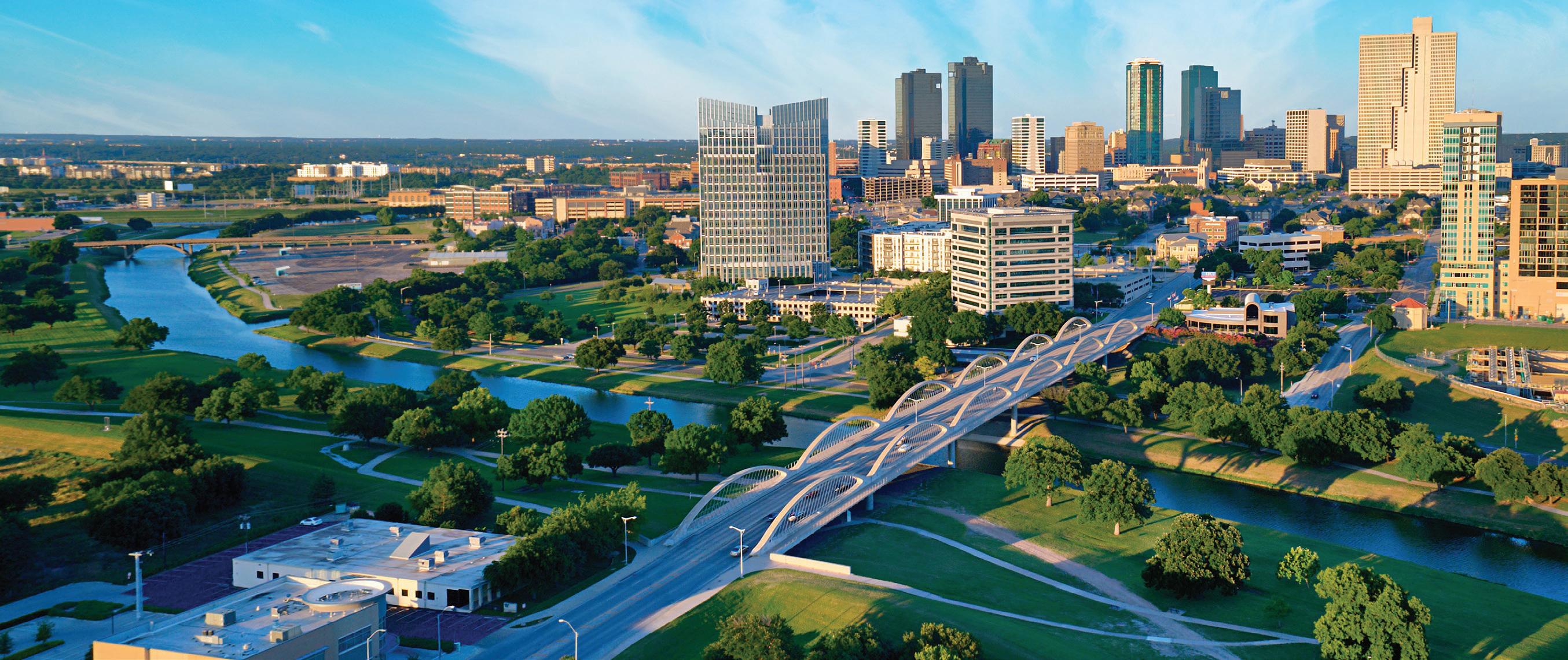
Tarrant County College, in partnership with the Fort Worth Film Commission and 101 Studios, offers accelerated programs that equip graduates with in-demand skills and seamlessly connects them with employers—meeting the growing needs of the North Texas film industry.
A Message From the Mayor
s Mayor of Fort Worth, advancing education, workforce development and economic growth are among my top priorities. In recent years, we’ve seen incredible progress in these areas and have been reminded just how intertwined they are.
Investments in higher education are helping create unique opportunities for students, researchers and businesses to thrive in Fort Worth in ways that simply don’t happen elsewhere. Fort Worth’s bustling film industry is one of many examples.
Fort Worth’s film journey began with the establishment of the Fort Worth Film Commission in 2015, and it has since evolved into a thriving industry. With the support of the Texas Moving Image Industry Incentive Program, our city was able to create the Media Production Development Zone in 2018—making Fort Worth only the second city in Texas, after Austin, to establish such a zone. This initiative, along with projects like Red Productions, has played a critical role in building studios and attracting a vibrant film landscape, generating over $700 million in economic impact and creating more than 30,000 local jobs.
As a result, Fort Worth has hosted major productions like 1883, Lawmen: Bass Reeves, Lioness and Landman—showcasing the vast potential of our region. The creativity and hard work of industry leaders like Taylor Sheridan and the team at 101 Studios have transformed our local backdrops into versatile settings ranging from Montana to Washington D.C., and even Iran. This impact goes beyond the Hollywood stars who visit our city; it’s about the lasting impact on our economy and workforce.
A key part of this success is the collaboration between Tarrant County College (TCC) and the Fort Worth Film Commission. Together, they launched the Fort Worth Film Collaborative Certificate Program, which offers fast-track certifications for aspiring filmmakers and technicians. These specialized training programs in areas like hair and makeup, gaffer and
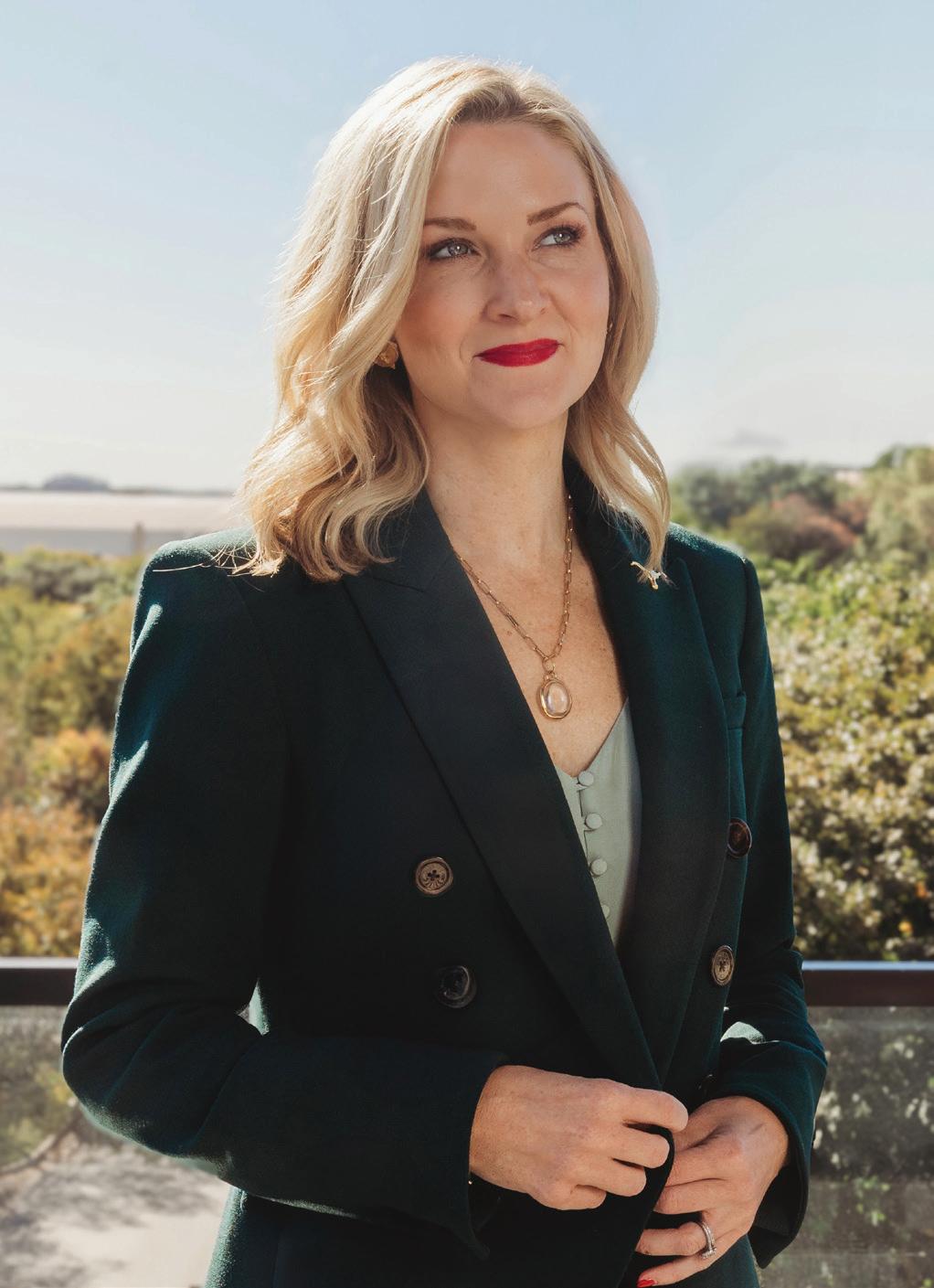
grip, and light commercial construction can be completed in as little as three months. The program is vital in addressing the growing demand for skilled professionals in the film industry. Enrollment has surged from fewer than 20 students to more than 200 since its inception, indicating strong interest and promise for our local workforce.
As the film industry continues to thrive, partnerships with local government, educational institutions like TCC and private industry will be essential in ensuring Fort Worth stays at the forefront of media production.
TCC’s role in the Fort Worth Film Collaborative is a powerful example of how educational institutions can partner with industry leaders to create pathways to success. As Fort Worth continues to grow as a film production hub, TCC will remain at the forefront of this exciting transformation, helping to develop a new generation of talent ready to shape the future of film in Texas.

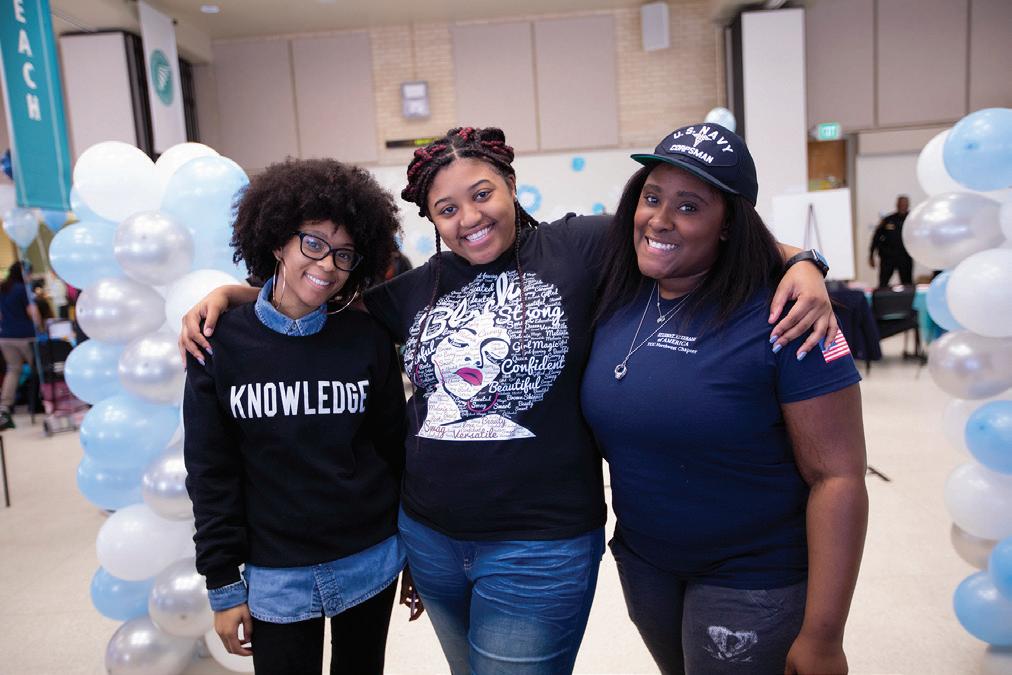
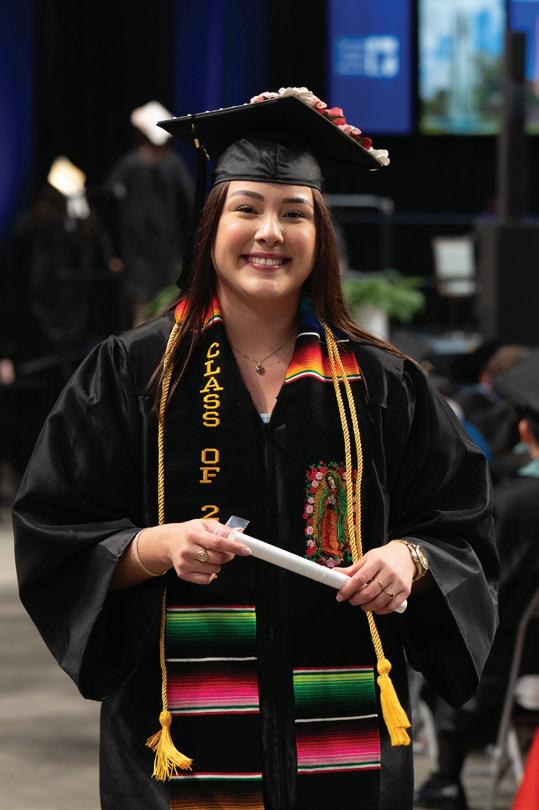
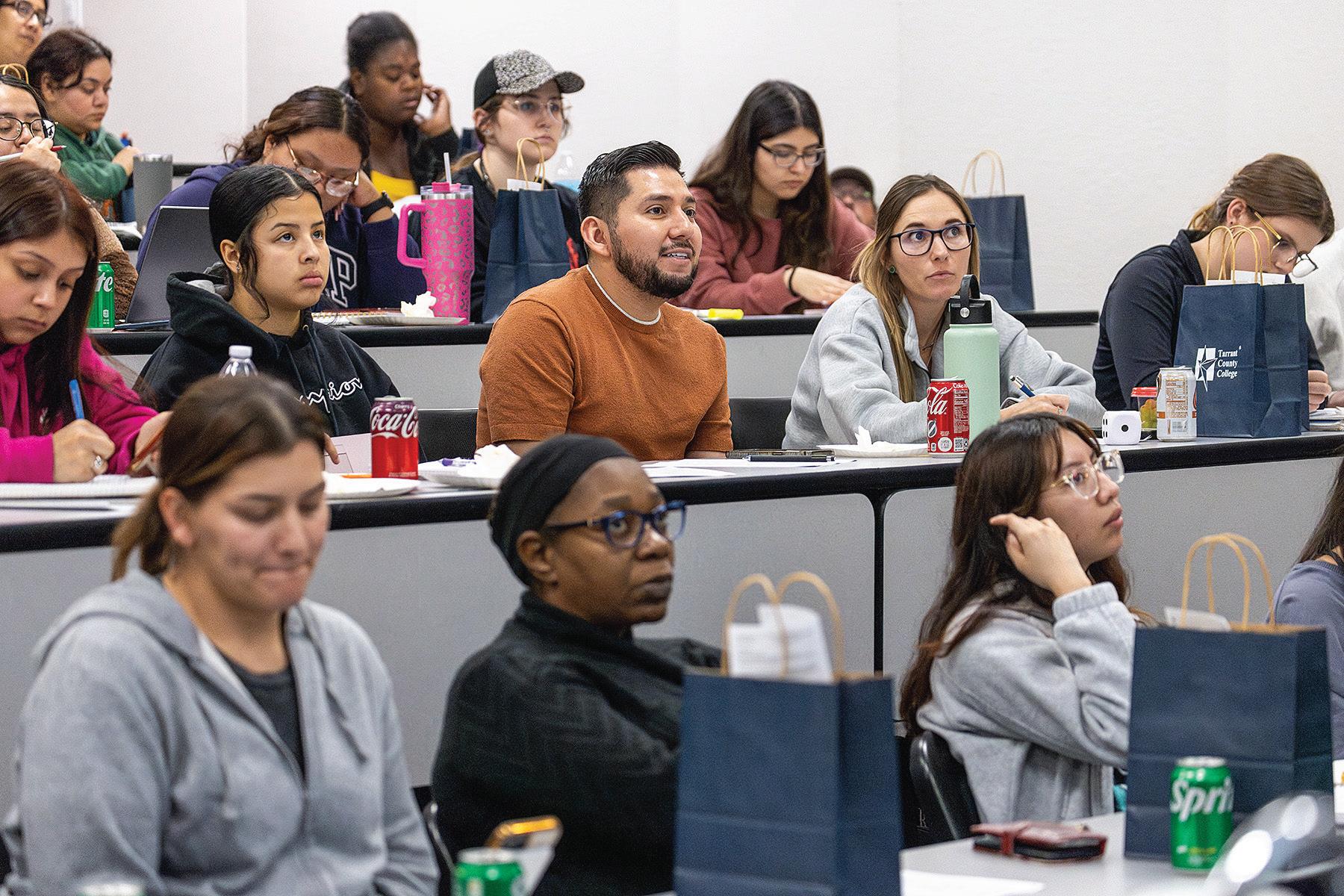
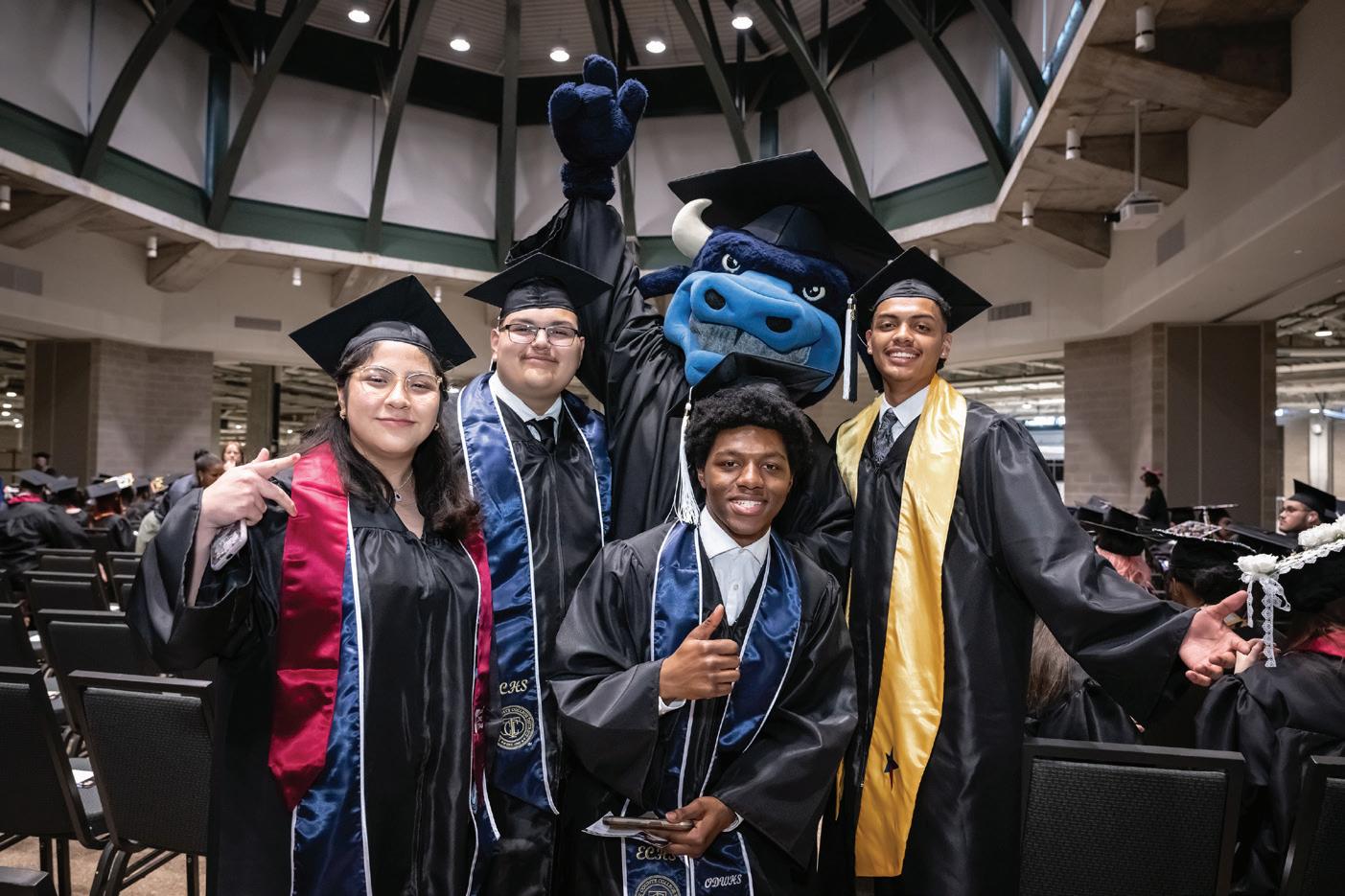
For six decades student achievement has been Tarrant County College’s core mission. We live it, breathe it, feel constant passion for it.
TCC Trailblazers spearhead businesses and lead nonprofits, care for the sick and educate young people, fight cybercrime and excel in the arts. Their success drives our historic pledge to help every student reach full potential.
When our students prosper, so do our county and our region.
We are a hub where learners seek hope and advancement, where employers mine talent and support, where connections knit together communities and raise the living standard.
WE ARE TCC.

or years, Texas has backdropped countless Westerns and actionpacked thrillers, but it’s Fort Worth that’s turning heads as an epicenter for film and television production. This city known for cowboy culture is stepping up as a serious player in the entertainment industry. With a roster of big names—Taylor Sheridan, Red Sanders, even Dr. Phil—Fort Worth is making its own name as a hub for Hollywood talent and production. And Tarrant County College is right in the center of the action.
When the Fort Worth Film Commission wanted to train film crews, we delivered fasttrack certifications in six months. Many of the classes take four weeks, with certification possible in as little as three months.
The College and the commission, partnering with key North Texas education and industry leaders like 101 Studios, created the Fort Worth Film Collaborative to build a robust talent pipeline for the state’s growing movie and TV industry. The collaborative was announced in fall 2023 following approval of a $200 million grant—the Texas Moving Image Industry Incentive Program—through the governor’s economic development fund to cover productions through August 2025.
This support for in-state production is opening doors for opportunities once only

imagined. Variety says Fort Worth is showing Hollywood that Texas means film business.
Working closely with TCC, the Fort Worth Film Commission has produced more than 20 original videos, featuring local experts as exclusive content, to support the College’s fast-track curriculum: Grip and Lighting, Hair and Makeup and Light Commercial Set Construction.
Four new certifications are coming next spring: Camera Department, Sound Department, Art Department and Costume Department. Everyone wins. Students fine-tune their careers and elevate their living standard. Film and television companies discover the talent they can’t do without.
Trailblazer and local native Taylor Sheridan, the writer and director behind Yellowstone and 1883, has become synonymous with the Western genre; his success enables the city to shine as the perfect setting for his period dramas. With Sheridan’s work fueling the city’s film-friendly reputation, Fort Worth has become a filmmaker destination for capturing that authentic Western feel.
Red Sanders, a respected filmmaker and producer, is known to blend realism with high-stakes drama. Fort Worth’s characterrich locales are perfect for his films.
And let’s not forget Dr. Phil, the psychologist turned media mogul, who has made Fort Worth a home for his long-running talk show. Filming in the city is a game changer for Fort Worth’s entertainment scene.
You’re looking at an entertainment powerhouse, eagerly embraced by local filmmakers, seasoned stars and the community. Hollywood just might have met its Texas rival. Fort Worth and Tarrant County College— they’re ready to help.

Elva Concha LeBlanc, PhD chancellor, tarrant county college district
BOARD OF TRUSTEES
Teresa Ayala, President
Kenneth Barr, Vice President
Jeanne Deakyne, Secretary
Leonard Hornsby, Assistant Secretary
Shannon Wood
Laura Forkner Pritchett
Gwendolyn Morrison, PhD

CHANCELLOR Elva Concha LeBlanc, PhD INTERIM
VICE CHANCELLOR, COMMUNICATIONS & EXTERNAL AFFAIRS Reginald Gates, MEd
Jan Clayton, EdD
PRESIDENT/CEO
Kimberly Ferrante
GROUP PUBLISHER Adam Pitluk, PhD
CREATIVE DIRECTOR
David Halloran
COPY EDITOR
Becky Williams
CONTACT
The Lens, published by Midwest Luxury Publishing, LLC (d/b/a Southern Luxury Publishing), for TCC’s Department of Corporate Solutions & Economic Development, celebrates local corporations, workforce, residents and guests from around the world, giving TCC one of the most diverse portfolios in higher education.
All material is strictly copyright protected and all rights are reserved. No part of this publication may be reproduced in whole or in part without written permission of the copyright holder. All information and data are correct at the time of publication. Opinions expressed in The Lens are not necessarily those of Midwest Luxury Publishing, and Midwest Luxury Publishing does not accept responsibility for advertising content. Any images supplied are at the owner’s risk and are the property of the owner.
Printed in the USA
Hollywood A-lister Jill Wagner has been in the industry for decades. She credits her sudden career rise to a television show filmed outside Fort Worth.
by adam pitluk, phd
Film aficionados know Jill Wagner as Polly Watt in Splinter or Stephanie Braven in Braven. Television buffs know her from the series Bones and Mystery 101. These days, everybody knows Jill Wagner as Bobby in the Paramount+ hit series Lioness
But the Hollywood starlet wasn’t always sure that her career would peak. In fact, were it not for her professional relationship with Hollywood’s “it” guy, Taylor Sheridan, she might never have become a household name. Wagner sat down with The Lens to share her trajectory and what it’s like to film Lioness throughout Texas—especially in Fort Worth.
The Lens: Growing up in North Carolina, did you know from a young age that you wanted to be an actor?
Jill Wagner: I certainly didn’t grow up wanting this to be my profession. I never took drama in high school or college or anything like that. In fact, I was pretty sure I was going to take over my dad’s tire shop, which is why the hat that Bobby wears on Lioness says Wagner Tire.
But acting was like a calling. No matter where I was in life, I knew this is what I wanted to do. I’m truly doing what I was meant to do. And I ran into the right people at the right time.
Good luck?
I wouldn’t say it was luck, because my work as an actor has always been a hustle and a struggle. But that struggle is my art, and that struggle is the part that I love about the business. To be honest, right now, I’m as high as I’ve ever been in my career on the Hollywood ladder. I’ve been doing this for over 20 years, but the ride has been amazing: I really have just enjoyed the ride.

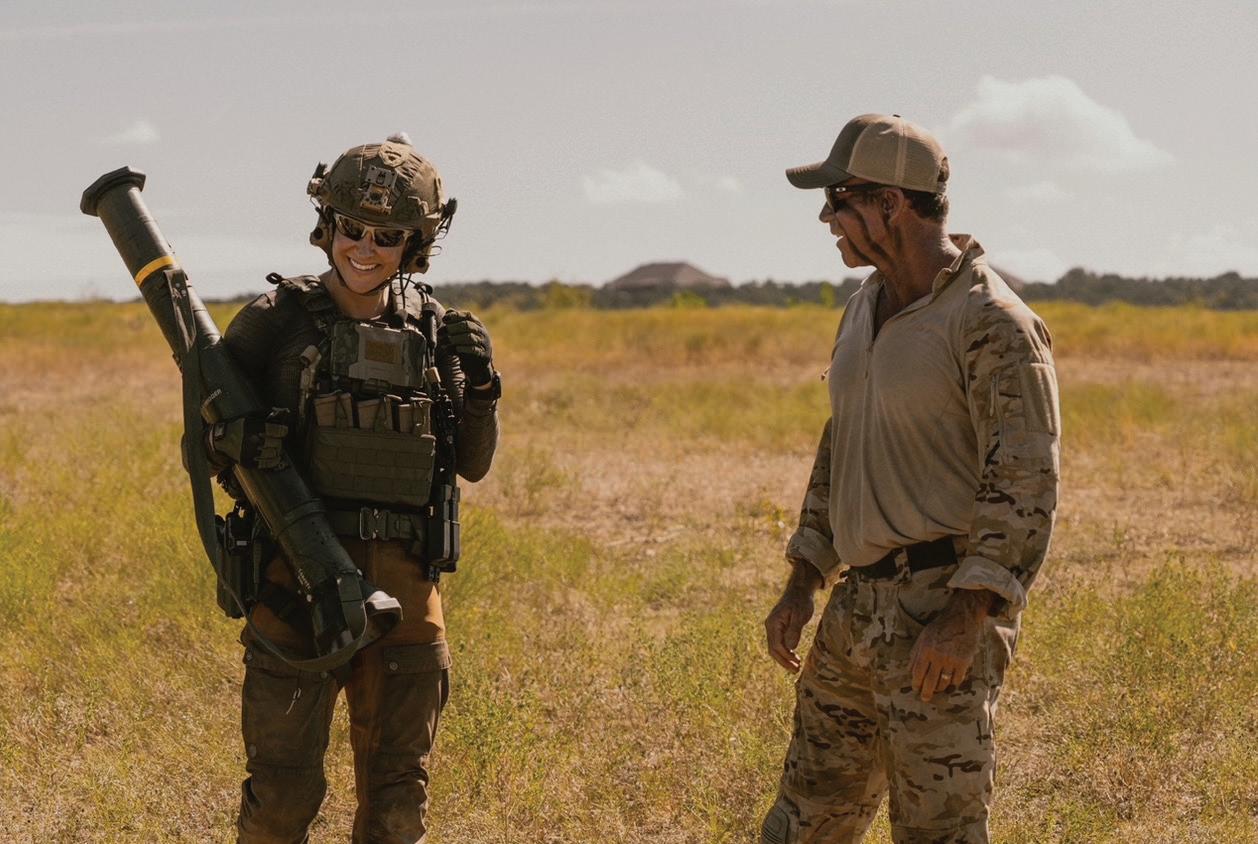
You’re a grinder: You’ve been grinding out your career, and Lioness was a tremendous overnight success. Does it get harder to try to stay humble or keep that humility when more and more people know your name and recognize you in public?
You know, it’s funny. It’s been the opposite. I thought I wanted to be in the room with the best of the best and be surrounded by it and go to the Oscars. Now that I have access to it, I’ve loosened my grip on my dreams, so to speak. That doesn’t mean that I’ve gotten lazy and that I don’t pursue my dreams. That’s not what it means. It just means that I think in my 20s I was like, “If this doesn’t happen, then I will be crushed.” I no longer feel like that.
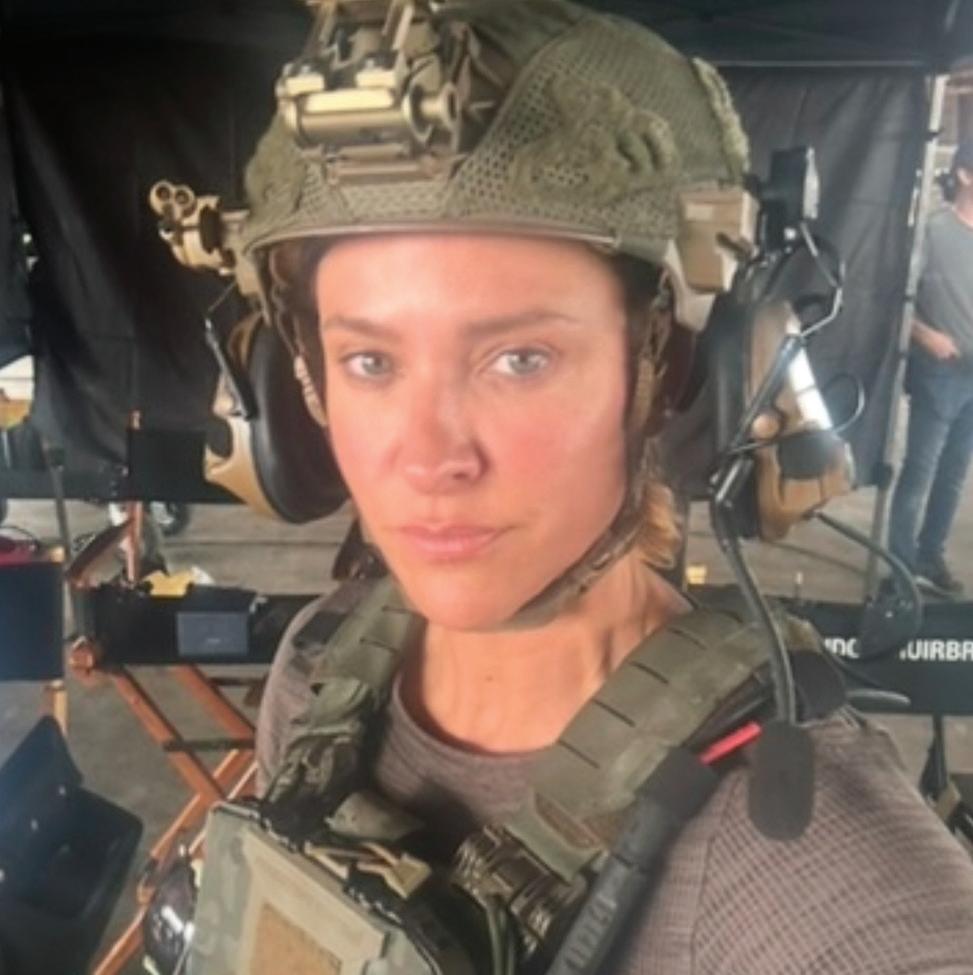
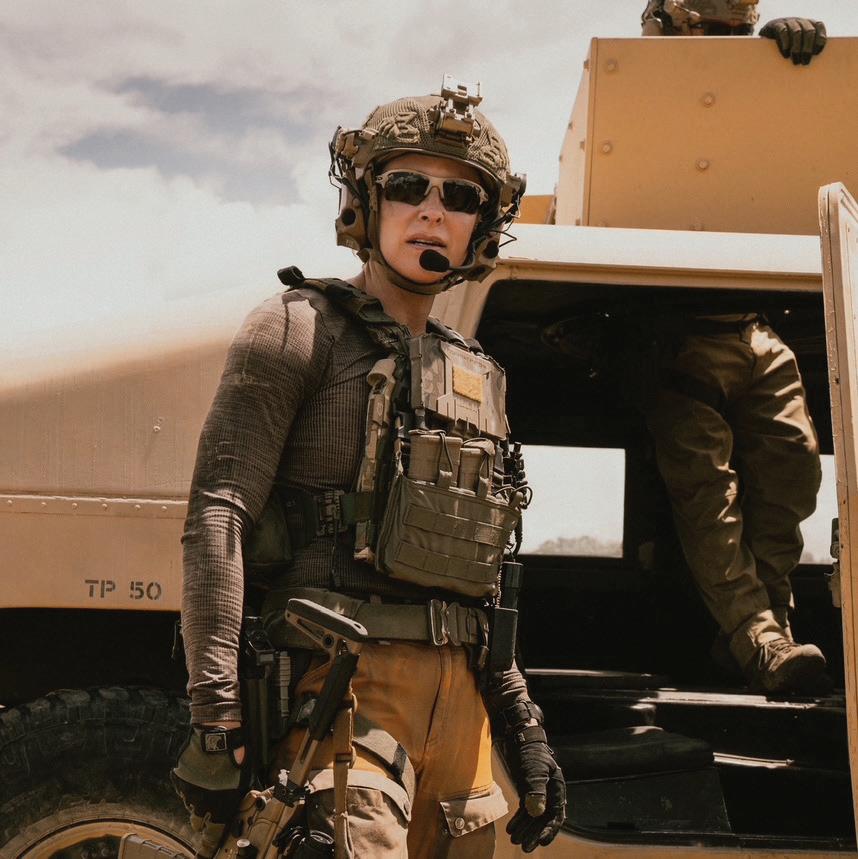
How did Taylor Sheridan discover you for the role of Bobby in Lioness?
Actually, my husband and I brought the premise to Taylor. We live in East Tennessee and had a campfire one night and got into a conversation about my career. I said to my husband, “I guess it’s kind of over. I’m almost 40 and I feel like I missed the boat.” We started talking about my dream project, which would be to play a woman in the military. The next thing I knew, it was five in the morning and we’d created the concept for Lioness. Taylor was my old acting coach from back in the day, and I sent it to him. I don’t think anything happens by coincidence. I believe I was placed in his acting class in my 20s for this moment almost 20 years later.
Why did you decide to film in Texas?
Texas is Taylor’s home. I think Taylor is happiest when he’s in Texas, and if the man wants to be in Texas, we will bring the show to him. That’s how important he is.
After filming there, I’d be more than happy if every flippin’ episode took place in Texas. I love Texas. I loved filming in Texas. I love it so much that we were filming in the summertime in Texas and I still loved it.
Lioness employed a lot of locals for production and other important elements. Tarrant County College helped educate many of those people for the film industry workforce. Can you speak to the professionalism of the Texas film crew? All of the people on set, especially the young people, were really, really gracious and very appreciative that we were there and working with them. On some locations you film in areas where the crew have an arrogance because they’ve had too much work. We experienced the opposite in Fort Worth. Exceptional conditions to film, and amazing people.
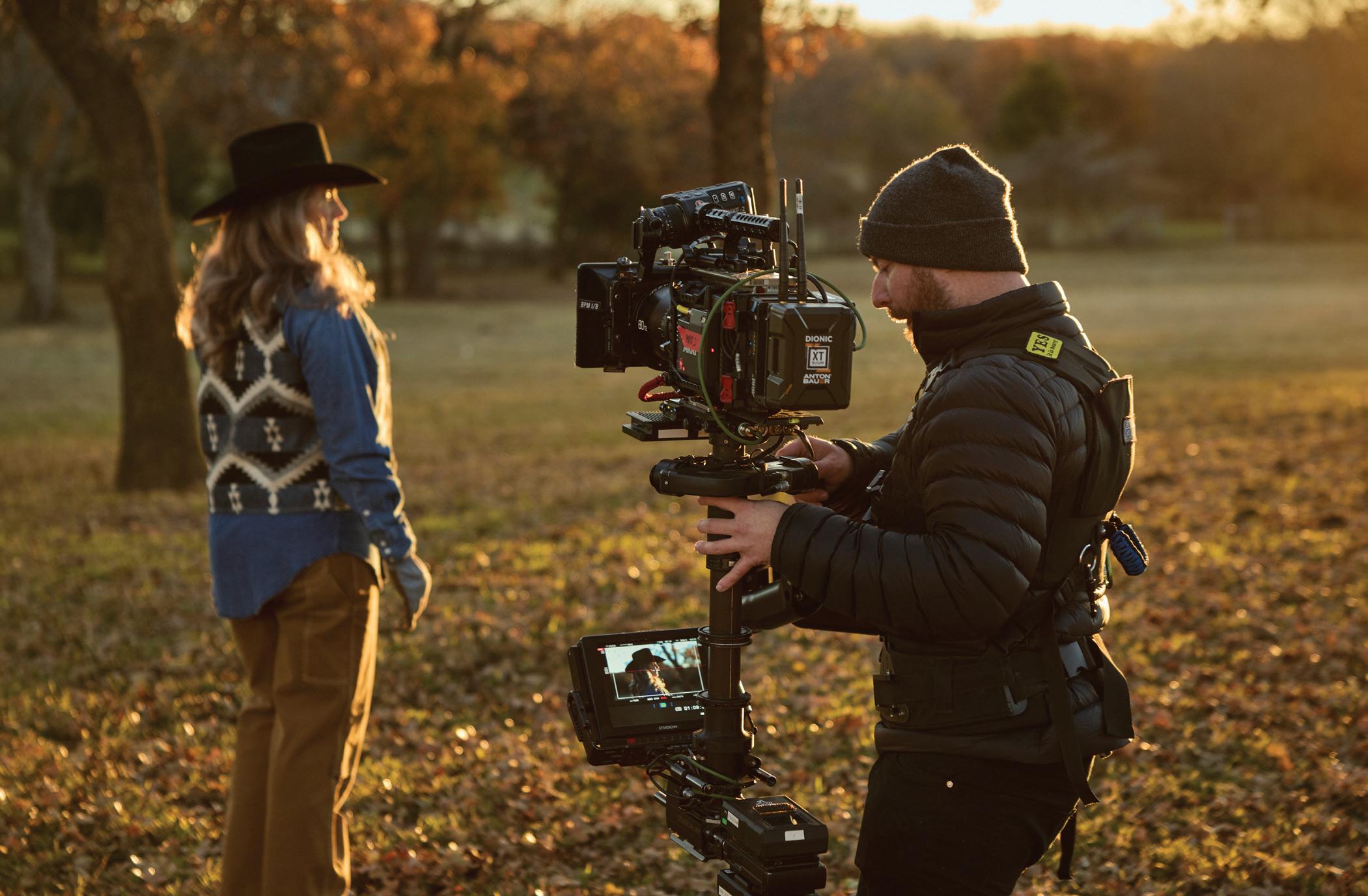
Red Sanders is right where he wants to be, and he’s improving lives along the way. by mackenzie finklea
Fort Worth native Red Sanders has always had a heart for entertainment. After starting his first company when he was 14, he now sports a decades-long history in media production that may only be just beginning.
Twenty years ago, fresh out of Texas Christian University with his radio, television and film degree, he launched Red Productions with the help of the Neeley Entrepreneurship Program. He wanted to produce creative film assets, from commercials to feature films. Today, 20 full-time staff members keep Red Productions at the apex of the Dallas-Fort Worth-area media firms.
Red Studios, the entertainment arm of Sanders’ empire, creates original content, movies and TV shows. It seeks to “shine a spotlight on the real and the creative,” producing shows like Self-Employed and Fruitcake Fraud for streaming on Discovery+.
The Fruitcake Fraud project took a documentarystyle approach to the infamous story covered by Texas Monthly in the article “Just Desserts,” which detailed how the controller of the renowned Corsicana-
based Collin Street Bakery embezzled $17 million from the family-owned business. Now the story is getting the full Hollywood treatment. Red Productions, in partnership with Texas Monthly and Jennifer Garner, is bringing Fruitcake Fraud to the big screen.
“I’ve always loved Texas Monthly’s stories, and to work with them is a real treat,” Sanders says. “This story is very close to home. My cousin owns the fruitcake bakery!”
“Twenty years ago, there were only three media production companies in DFW. Now, there are nearly 30.”
— Red Sanders FOUNDER, RED PRODUCTIONS
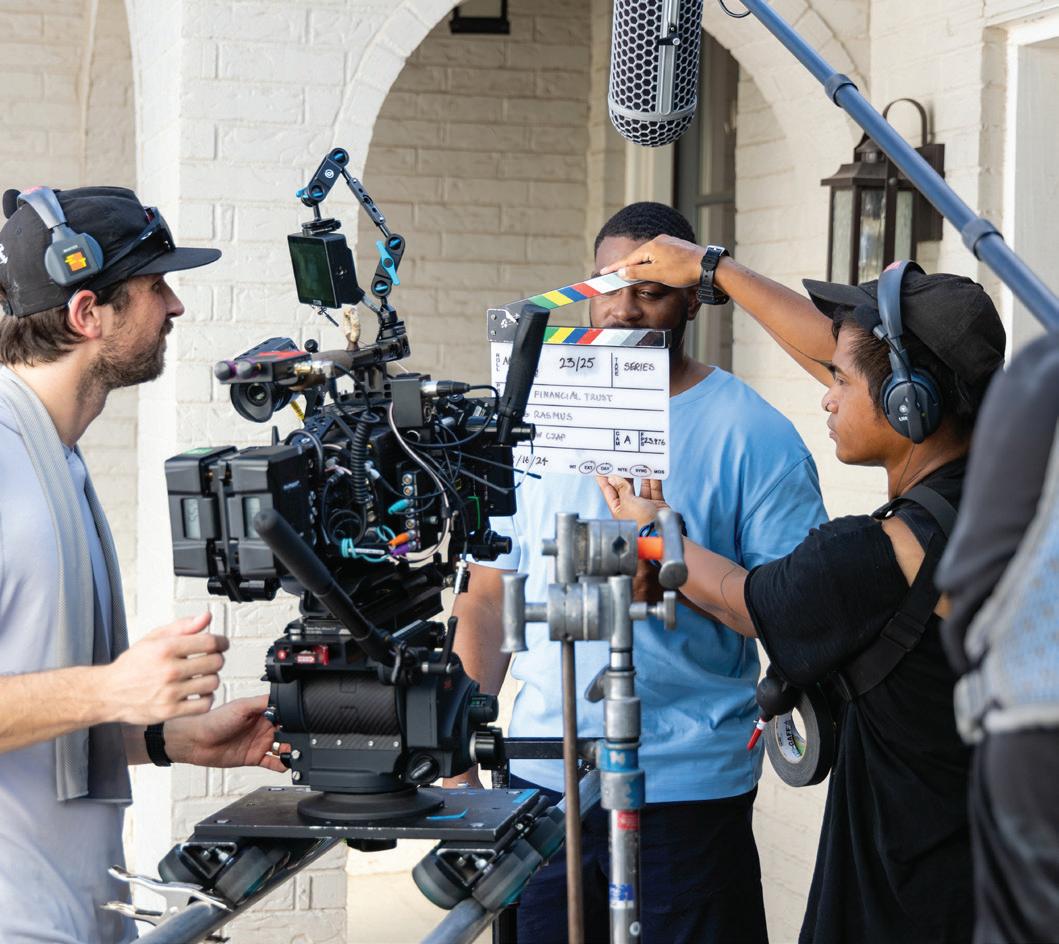
The feature-length film idea was pitched to him at a Tribeca Film Festival afterparty. The film, a comedic drama, explores the pursuit of the American Dream and the extraordinary lengths people will go to achieve it.
When people think of media production—major films and the like—the Hollywood Hills often come to mind. While Red Productions does have offices in Los Angeles, most of its business is homegrown, right here in Texas.
According to Sanders, much of his company’s work serves “ambitious Texas-based brands that have a vision and get it.” And Sanders certainly gets it. He and his team recognize the value of hiring locally and nurturing the film industry within the state.
“It’s the story of what we are doing here that has really turned the tide in lobby efforts,” he says.
In 2024, the Texas Legislature more than doubled its investment in film incentives, aiming to attract more major productions to the state. Films shot on location in Texas provide a significant economic boost, particularly for smaller communities. When productions roll into town, they bring dozens, sometimes hundreds of cast and crew who stay in local hotels, dine at neighborhood restaurants and support small businesses. To date, Red Studios has done two projects through the incentive program.
Sanders is deeply passionate about the film industry and supporting it locally. In 2015, he played a key role in founding the Fort Worth Film Commission.
He says Mayor Mattie Parker personally asked, “What can we do to grow the creative class in Fort Worth?” Sanders’s answer: Establish an economic development arm to promote film projects—something nearly every other major Texas city already had. And with that, the Fort Worth Film Commission was born.
Sanders has witnessed firsthand the tremendous growth of the industry, particularly in Tarrant County. “A rising tide lifts all boats,” he says. “Twenty years ago, there were only
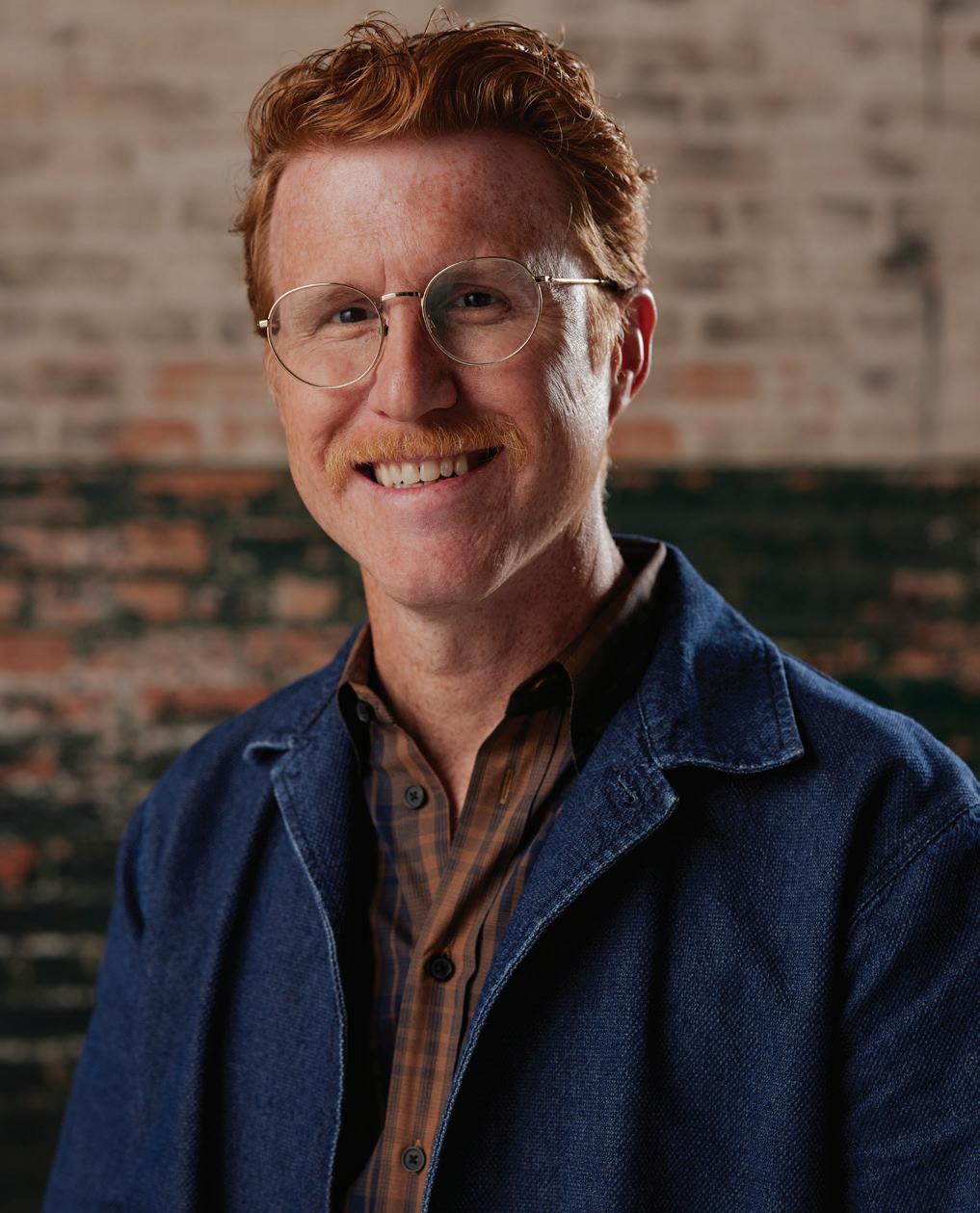
three media production companies in DFW. Now, there are nearly 30.”
Sanders recalled how the TV series Breaking Bad brought a lot of attention to Albuquerque, New Mexico. Small-town Texas communities hope that releases like Landman and 1923, created by industry peer Taylor Sheridan, will have a similar impact. These productions could attract “set-jetting” visitors from across the country, eager to explore the filming locations made famous by the series.
This growth is especially significant for graduates of film and arts programs at Tarrant County College. “You don’t have to go to New York or L.A. to get a job,” Sanders says. “So much of the industry is coming here—even Taylor Sheridan lives in Weatherford.”
Red recalled that 20 years ago, most of his classmates left town immediately after graduation in search of industry jobs. Today, more graduates stay and build their careers in Texas. With major investments in film incentives, this is a pivotal moment for the industry’s growth.
DFW and Texas as a whole offer abundant opportunities for film training. TCC’s Film Collaborative Certificate program is one standout example. “It’s fantastic,” Sanders says. “The biggest thing the industry needs is students being trained here who stay here.”
To further support local creatives, Red Productions provides a backlot studio and office as a coworking space in Fort Worth. The company also is collaborating with Texas A&M University to launch a studio featuring a virtual production institute, further strengthening Texas’ position as a film industry hub.
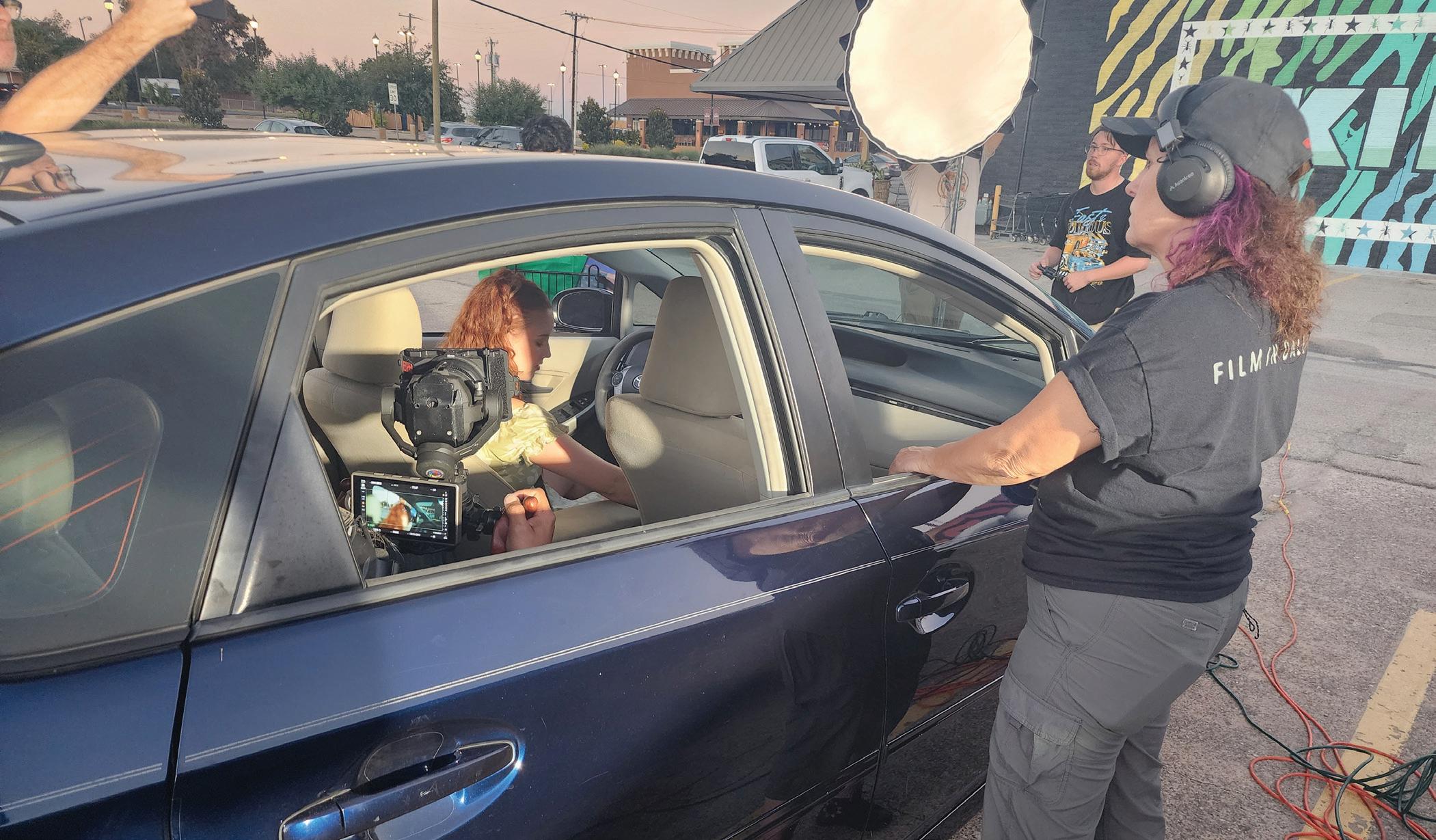
The students in Tarrant County College’s Film Collaborative Certificate program are taking their education beyond where they once thought it could go. In an interview with The Lens, they showed what it means to be truly engaged in filmmaking. These students aren’t just passive listeners—they’re active participants, challenging the norms, pushing boundaries and learning from seasoned professionals. It’s this kind of hunger that will propel them in the fast-paced world of film.
Monica Coppola returned to North Texas after a divorce.
“I saw the Film Collaborative program and thought it would be a great way to get my foot in the door,” she says. “I got my degree [Associate of Applied Science] in radio, television and film.”
Dallas native Cole Harvey graduated with a bachelor’s degree in motion picture production but struggled to find film work. The TCC program, he says, is “a good opportunity to learn and make connections.”
Fort Worth visual artist Ramiro Rosas is experienced in classic automobile restoration, woodworking and electrical. At 43, he was looking for fresh creative outlets.
“The Film Collaborative program is a great opportunity to learn something new,” he says, “apply my current skills and knowledge to the growing Texas film industry, and provide for my family at the same time.”
They all chose the Grip and Lighting Certificate but worked other jobs, too. All agree on the program’s affordability, efficiency and flexibility.
MC: I was a production assistant for the art department last year through the Fort Worth Film Collaborative. My second production I found on my own through networking. I was the electrical person but also helped the gaffers. The hours were long but worth it. I have to pace myself since I’m a full-time student and have a part-time job.
CH: I am a location sound recordist for film and finally started getting some professional work—one feature, a short film and a promotional video with Visit Fort Worth.
RR: Last year I worked on my first big-budget production, but the role wasn’t behind-the-scenes where I could test what I learned. I was cast to play a pool cleaner on Lioness, Season 2.
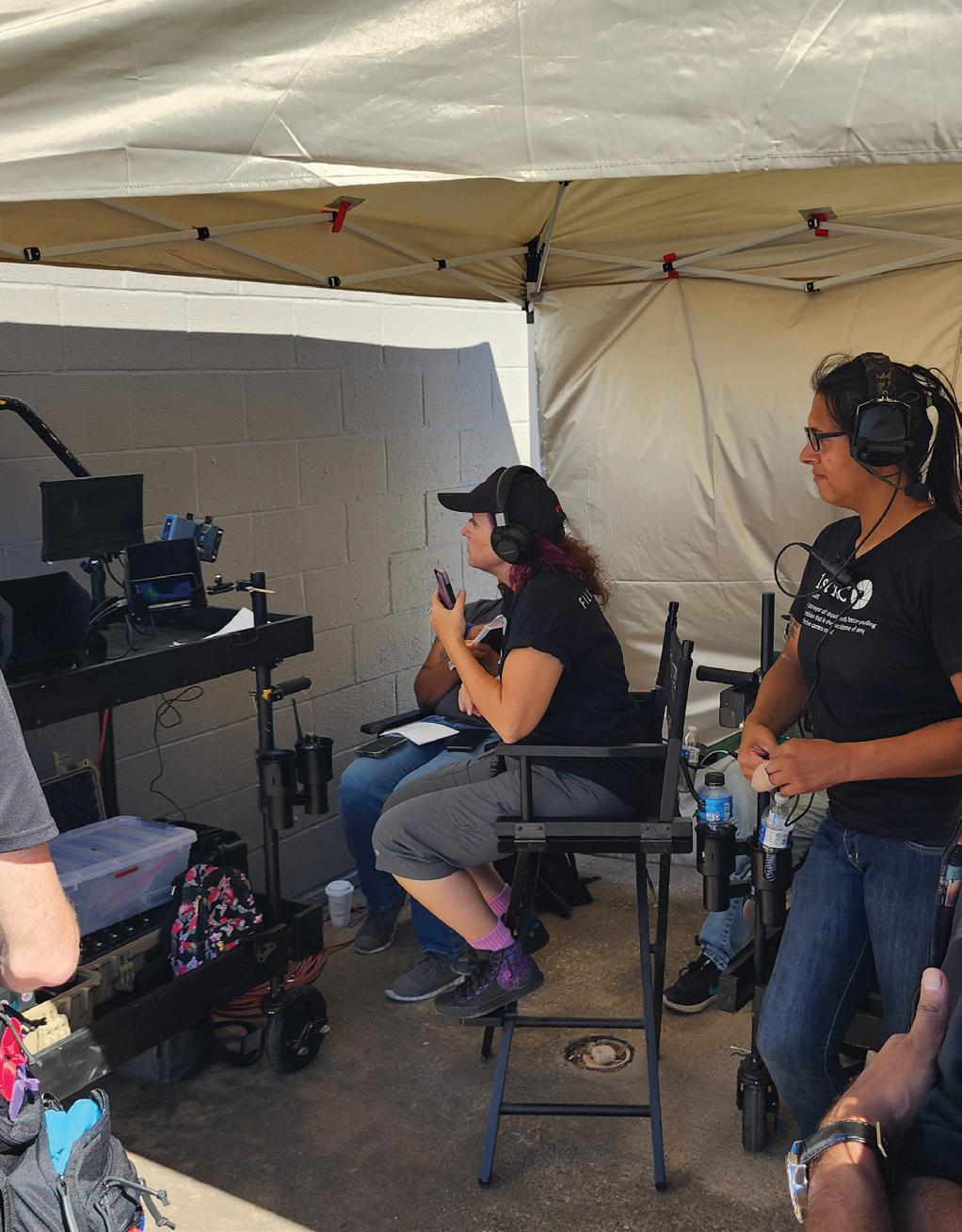
How has TCC set you up for success?
MC: I know about the equipment, what everything is called and how to use it. The training helped me feel better about knowing the basics.
CH: I have benefited greatly from people I’ve made connections with. The opportunity to get more hands-on grip experience has helped me on set when needing to do something that was out of my expertise.
RR: The production skills I learned have helped me understand the lighting in films more. I apply that to my own drawings and filming.
What’s your favorite part?
MC: They were very generous, letting me ask a lot of questions—something I was told usually doesn’t happen on bigger film sets.
CH: Definitely the people. I love the feeling of being on sets.
RR: Learning about all the different equipment and techniques used on set and in the field while getting to use the cameras and lights on my own.
What are your ultimate job aspirations?
MC: I would love to end up in film or television.
CH: My main goal is to record sound for major film productions or other projects I’m passionate about.
RR: I would like to apply my current creative and technical skills to the set construction or art department. I’m open to learning the many roles of the film industry to push myself forward.

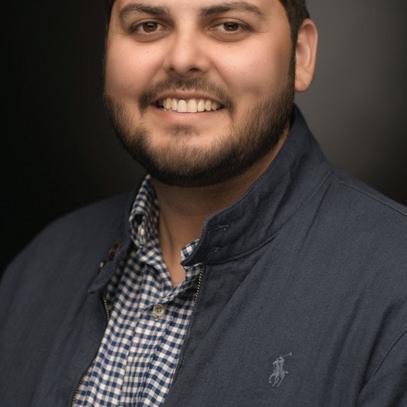
Danny Vazquez completed the Film Collaborative Certificate program in less than four months. And in March 2025, he will launch a hiring app for Texas film workers.
He had accepted a challenge from Cody Lassiter at Paramount Pictures. Through an unexpected encounter between Vazquez’s mother and Lassiter, she got his business card and an invitation to talk.
“After a two-hour conversation,” says Vazquez, “he challenged me to leave California and enroll in the Fort Worth Film Collaborative at TCC. I packed up my life, drove 1,360 miles through a Texas snowstorm and started a new chapter.”
He left behind 10 years as an assistant general manager, marketing director and sales director with Minor League Baseball. He yearned to use his passion for storytelling. He found it in Fort Worth.
TCC’s Fort Worth Film Collaborative not only provided hands-on training but also direct networking opportunities that led to his first job in the industry.
He worked as the assistant travel coordinator for Lioness, Season 2, handling housing, transportation and logistics and ensuring seamless travel arrangements for the cast and crew. “Currently,” he says, “I’m serving in the production office of Landman, Season 2, as a day player.” He says he hopes for a permanent role in the locations department or production office.
Vazquez’s new app, OnSet, will “connect department heads and hiring managers to verified Texas-based film crew members with certified work experience and credentials, streamline hiring and reduce the need to bring in out-ofstate workers. With Fort Worth’s growing film scene, I see tremendous opportunities here,” Vazquez says.
TCC’s new Fast Track Film and TV Certificate programs bring Hollywood to the Metroplex. by
jennifer blalock, edd
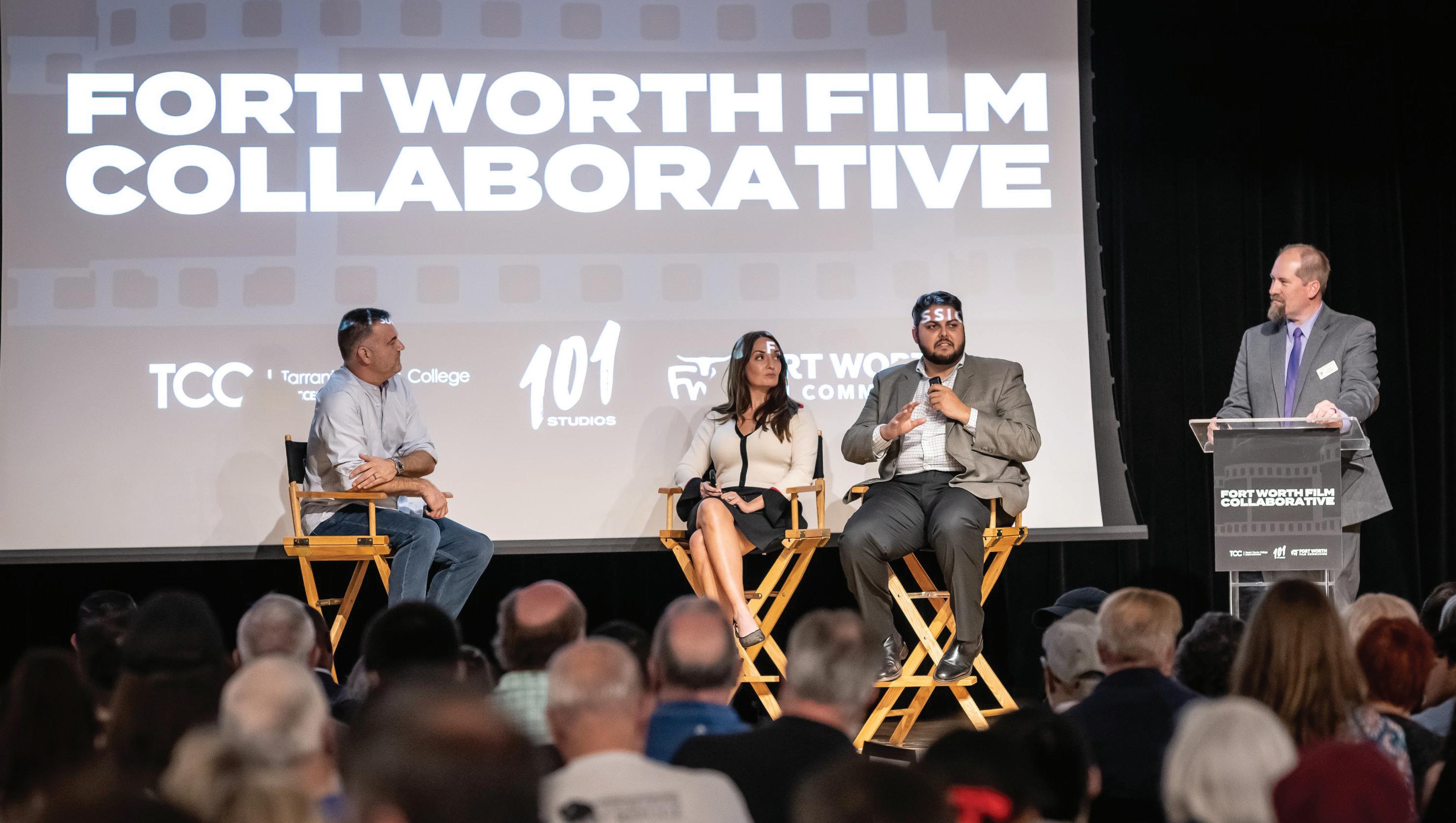
The North Texas summers are hot, but there’s another area where the Lone Star temperature is rising —the movie and television production. Just how hot?
A recent headline offered insight into how exciting the North Texas film and production industry has become, and it’s only getting hotter.
In characteristic Texas bravado, digital KSAT journalist Mason Hicock asked, “Will Texas be the nation’s next film capital?” Based on a quick preview of the latest figures, this question isn’t as grandiose as one might think.
Driven by bipartisan legislative support of the Texas Moving Image Industry Incentive Program (TMIIIP), the state has invested up to $200 million in an industry whose traditional market share is monopolized by the bright lights of Hollywood, California and New York City. The rising costs of producing movies in those two headliner locations, coupled with a 22.5% rebate over two years and sizable tax exemption incentives for film and video game developers, have put North Texas in the spotlight as a premiere filming location.
What caused this upward trajectory? TMIIIP state initiative spotlights North Texas as a cost-effective production location. The program provides cash grants to qualifying projects based on their eligible Texas spend, as well as additional results:
Up-front sales tax exemptions on most items rented or purchased for direct use in production.
Refunds of the 6% state occupancy tax on hotel rooms occupied for more than 30 consecutive days.
• Refunds on fuel taxes paid on fuel used off-road.
• Cash grants based on a percentage of a project’s eligible Texas expenditures, including eligible wages paid to Texas residents.
These opportunities don’t come without expectations that directly contribute to economic development and job
“Our grip and lighting programs focus on how to safely handle the latest film equipment, and this saves film production time, money and resources.”
— Sean Foushee
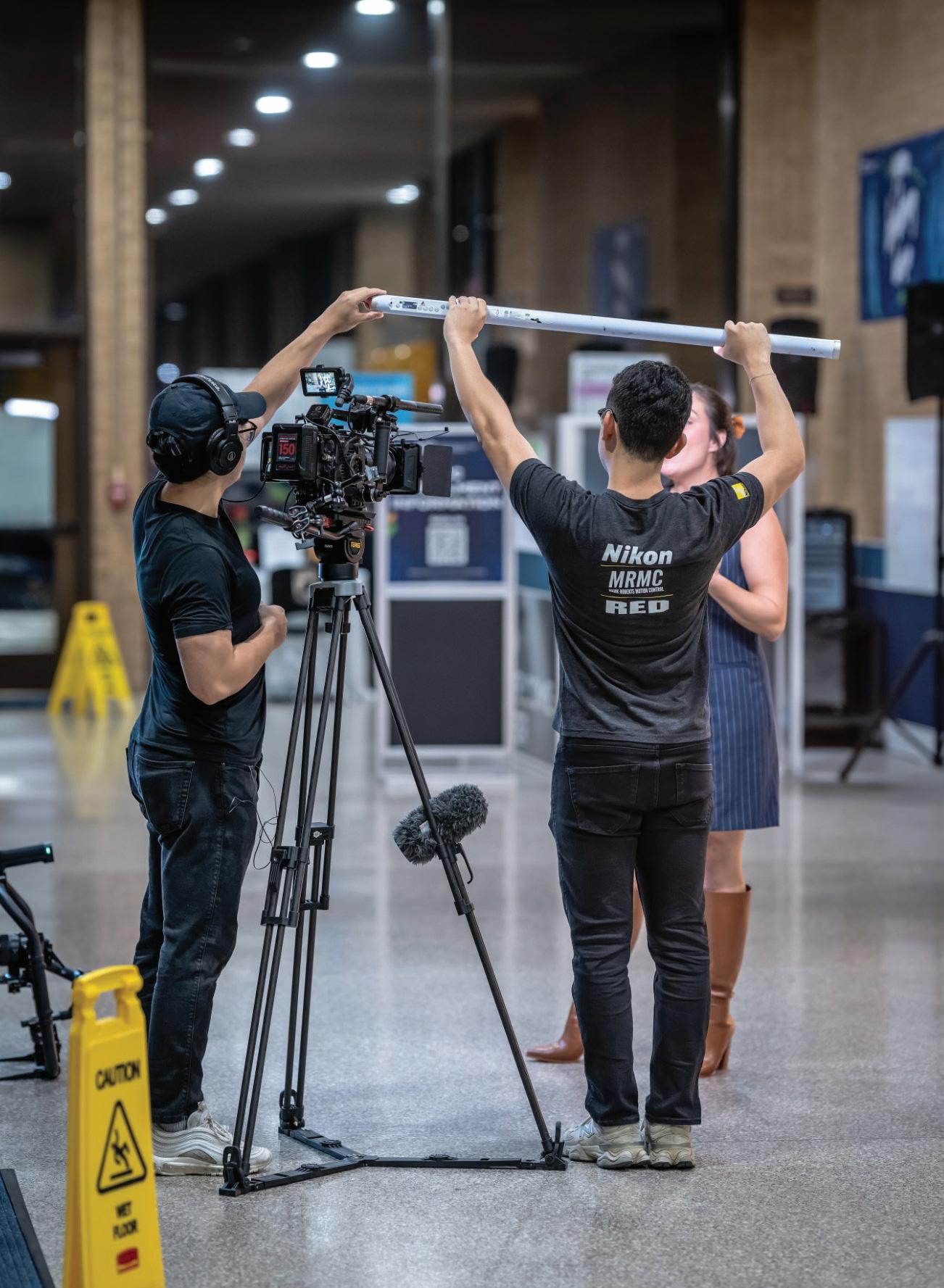
growth. Eligibility for the benefits mandates that 60% of filming days must be shot within Texas, and 55% of the cast, including extras and crew, must be residents.
The legislative funding includes $48 million in grants for small films and television commercials and $450 million in new tax credits. Boosted by its picturesque natural scenery and easy access to quality infrastructure and rich resources, these incentives offer a value that production companies find hard to pass up.
Launched in 1971, the Texas Film Commission was established to build the state’s capacity in film and television production. Efforts were strengthened by the introduction of TMIIIP in 2007, which provided the legislative support to offer the grant funding to films, television and video games produced in the state. The last several years have seen a significant uptick in production volume, as streaming services and independent filmmaking have exploded.
The numbers and names of high-profile ventures occurring throughout the area are impressive and substantiate that television and film career training is needed and needed fast. According to the Texas Film Commission, between 2023 and 2024 nearly 20 film and TV productions took place in North
With course costs ranging from $200 individually to $1,500-$2,000 for an entire fast-track film production certificate, students can earn a career-ready credential that will open the door to myriad television and film careers. Here’s a list of all the certificates and career pathways:
TCC Fast-track Film Micro-credentialing program:
• Fast-track production needs have three certificates on the roster—affer/grip, hair and makeup, and light commercial construction.
• The three programs take from 165-213 hours to complete, depending on which is chosen, and some of the work can be completed online for additional flexibility.
“The film industry can greatly benefit from increased focus on transparency and inclusivity in training programs. By highlighting the value of behind-the-line roles, we can ensure a more diverse and well-prepared workforce for the future,” says Nioni Bromme, a film industry professional who transitioned from the dental field. And students will be able to master film and television production skills affordably, accessibly and efficiently.
Texas. The booming calendar features well-known titles, like the hit series Landman
This growth has generated a quick call for skilled production and on-set and behind-the-camera staff. Such roles as production assistant, lighting, gaffer, wardrobe management and makeup and hair technician are in demand like never before.
In already-bustling Fort Worth and Arlington, an unprecedented demand exists for highly skilled, trained, and passionate production professionals. These careers once required relocating to either Los Angeles or New York City, which resulted in concerns about earning a livable wage. Now they are accessible, available and well-paying. The only remaining barrier is how aspiring professionals obtain the credentials necessary to be competitive.
An innovative collaboration between the TV and movie production industry and a Tarrant County College has developed, designed and deployed a groundbreaking pathway that makes a dream career in film more attainable. To ensure North Texas can support a pipeline of production-ready team members, the College brought in Sean Foushee as the program coordinator and faculty liaison for 10 ready-to-work film and movie production certificates.
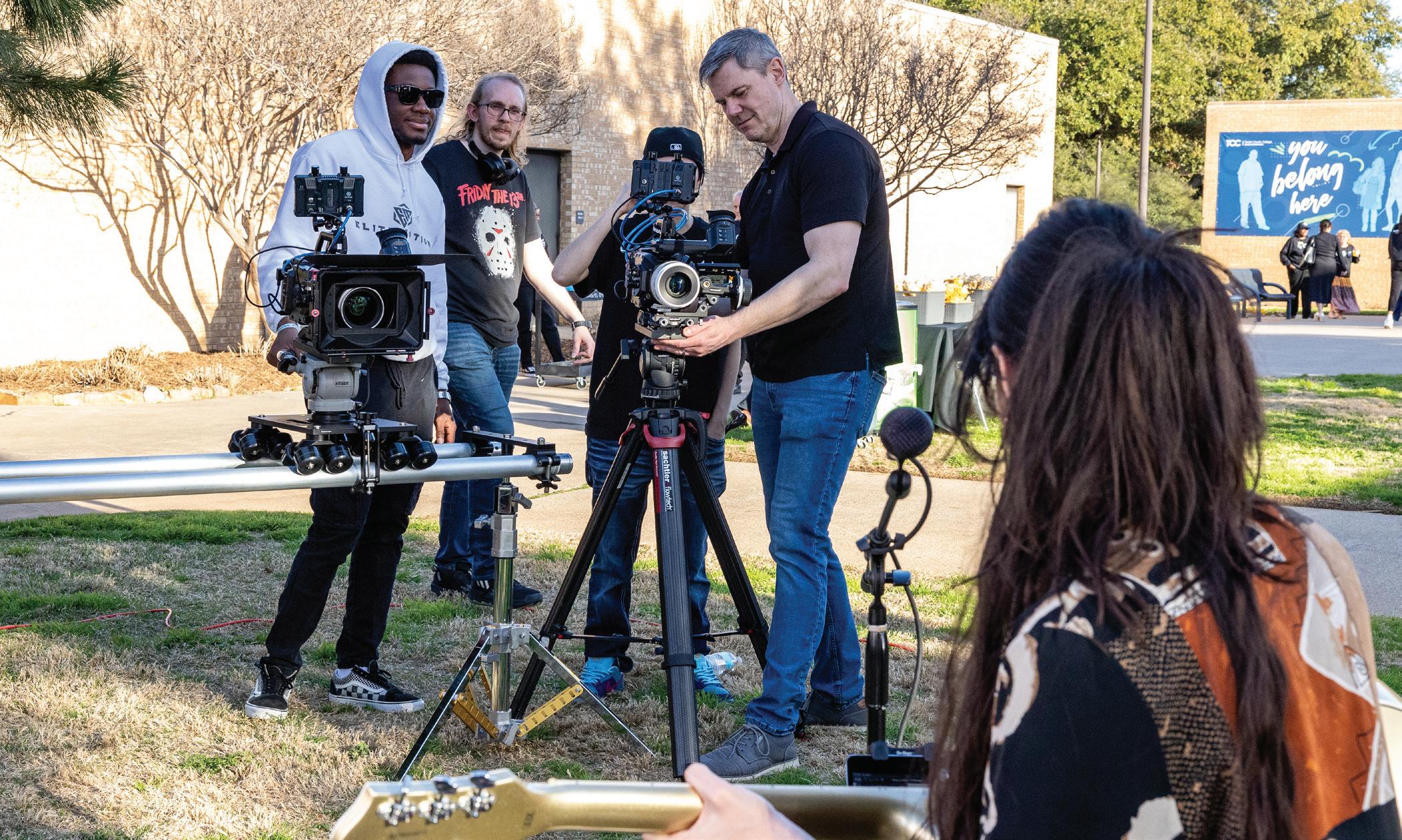
The Fort Worth Film Collaborative is a fast-track certificate program in partnership with the Fort Worth Film Commission, 101 Studios and TCC. It was designed to train and invest in local talent to build a robust North Texas film industry. Averaging about $300 per class, with a time commitment from four weeks to three months, the program has students who get hired before they’ve even completed it.
“Our grip and lighting programs focus on how to safely handle the latest film equipment,” he notes, “and this saves film production time, money, and resources.”
While these jobs don’t always follow a 9-to-5, Mondaythrough-Friday schedule, Foushee says the pay means his students, who are currently at a 100% job placement rate, don’t have to work all year long if they can be flexible and put in extra hours during the production schedule.
“No two days are the same, and the benefit is the production companies in North Texas are eager to support and mentor our graduates. They get immediate hands-on experience in a variety of fields, from production assistant to gaffer to location scout.” They should never have to look far for work.
That’s great for North Texas native Monica Coppola, who moved back to the area and was ready for a career change. After years in accounting, she was surprised to discover film industry training in her own backyard. With just her gaffer certificate completed, she has already been hired on two production sets and turned down a third.
“If you want to work in this field, there’s so much opportunity,” she says “As long as you’re flexible and willing to learn, you’ll be able to pick and choose without financial worry.”
Harold Taylor, Jr., who earned a bachelor’s degree in sound
design through the Savannah College of Art Design, actively supports film festivals and productions in South Georgia, another region with economic incentives and lush natural backdrops. Asked how he views the fast-track production certificates, Taylor is on board.
“These programs equip workers with essential, job-ready skills like camera operation, lighting, set design and editing through hands-on, industry-specific training,” he says “Fasttrack certificates provide an accessible pathway into the growing film industry, especially in cities aiming to become major production hubs.”
Like Foushee, Taylor sees the rapid shift in a field that demands job-ready labor today, not tomorrow. “Adaptability, technical proficiency and networking are just as valuable as formal education. Success depends on staying ahead of technology, collaborating effectively and building industry connections, which are all key focuses of these programs.”
While Georgia and other states consider ways to boost film production, North Texas is already in position to pump out the workforce. It’s a contender to become the next national capital of filmmaking, a role Foushee believes TCC’s Fort Worth Film Collaborative will nearly guarantee.
“We’ve established a blueprint for low-cost, high-quality film production in the fastest-growing region of the country, with ample space, opportunity and talent to support its continued growth,” he says of the program’s future. Film lovers and upcoming film professionals should stay tuned for the next act.
“It’s only going to continue growing,” Foushee confirms. “And I, along with our students, can’t wait for what’s next.”
H O W C O W T O W N
H O L L Y W O O D ' S B E C A M E
T E X A S H O M E
From sci-fi dystopias to gritty Westerns, Fort Worth’s architectural diversity and true Texas spirit have made it a filmmaker’s paradise for nearly half a century. by heide brandes
In Michael Anderson’s 1976 sci-fi classic Logan’s Run, an elderly character portrayed by Peter Ustinov lives among cats and books beneath the ruins of the U.S. Senate chamber. The area commands a key scene when the film’s main characters, Logan and Jessica, discover it.
The characters descend the massive steps of an active pool, water forcefully splashing around them. The dramatic architecture of the place, all stark concrete and cascading water, creates an otherworldly setting. It’s a pivotal moment as Logan and Jessica learn that aging beyond 30 is natural and that their society is built on a lie.
That place is the Fort Worth Water Gardens.
When director Anderson chose the Water Gardens as the power source for Logan’s Run, he didn’t just capture stunning visuals. He launched Fort Worth’s journey to becoming one of Texas’ most sought-after film destinations.
The Philip Johnson-designed modernist marvel, with its dramatic pools and geometric concrete formations, morphed perfectly into the futuristic energy center of the film’s dystopian world. The movie went on to win a Special Achievement Academy Award for Visual Effects and garnered nominations for Best Cinematography and Best Set Decoration.
“Logan’s Run was one of the first major projects to film in Fort Worth,” says Taylor Hardy, Visit Fort Worth’s film commissioner. “It has left a lasting impression, with fans still coming to Fort Worth to visit the Water Gardens filming location.”
From its breakthrough moments in Logan’s Run to being the backdrop for Taylor Sheridan’s television empire, Fort Worth has transformed from an occasional filming location into a major production hub generating hundreds of millions of dollars in economic impact. The city’s architectural diversity, spanning the modernist Water Gardens to the historic Stockyards, combines with its Western
heritage and film-friendly infrastructure to attract everything from big-budget television series to independent films.
With the establishment of the Fort Worth Film Commission in 2015 and recent productions drawing millions of viewers, Cowtown has cemented its position as Hollywood’s Texas home, offering filmmakers a complete production ecosystem with crew training programs, state-of-the-art facilities, and a deep understanding of both modern and period filmmaking needs.
“At the time, we were the only major city in Texas that didn’t have a film commission and were losing business to surrounding cities,” Hardy says. “Our goal is to promote Fort Worth as a filming destination and to help make filming in the city an easy process. We work with crews of all types and budgets, with many repeat customers who have been impressed by the city’s locations, talented crew and welcoming attitude.”

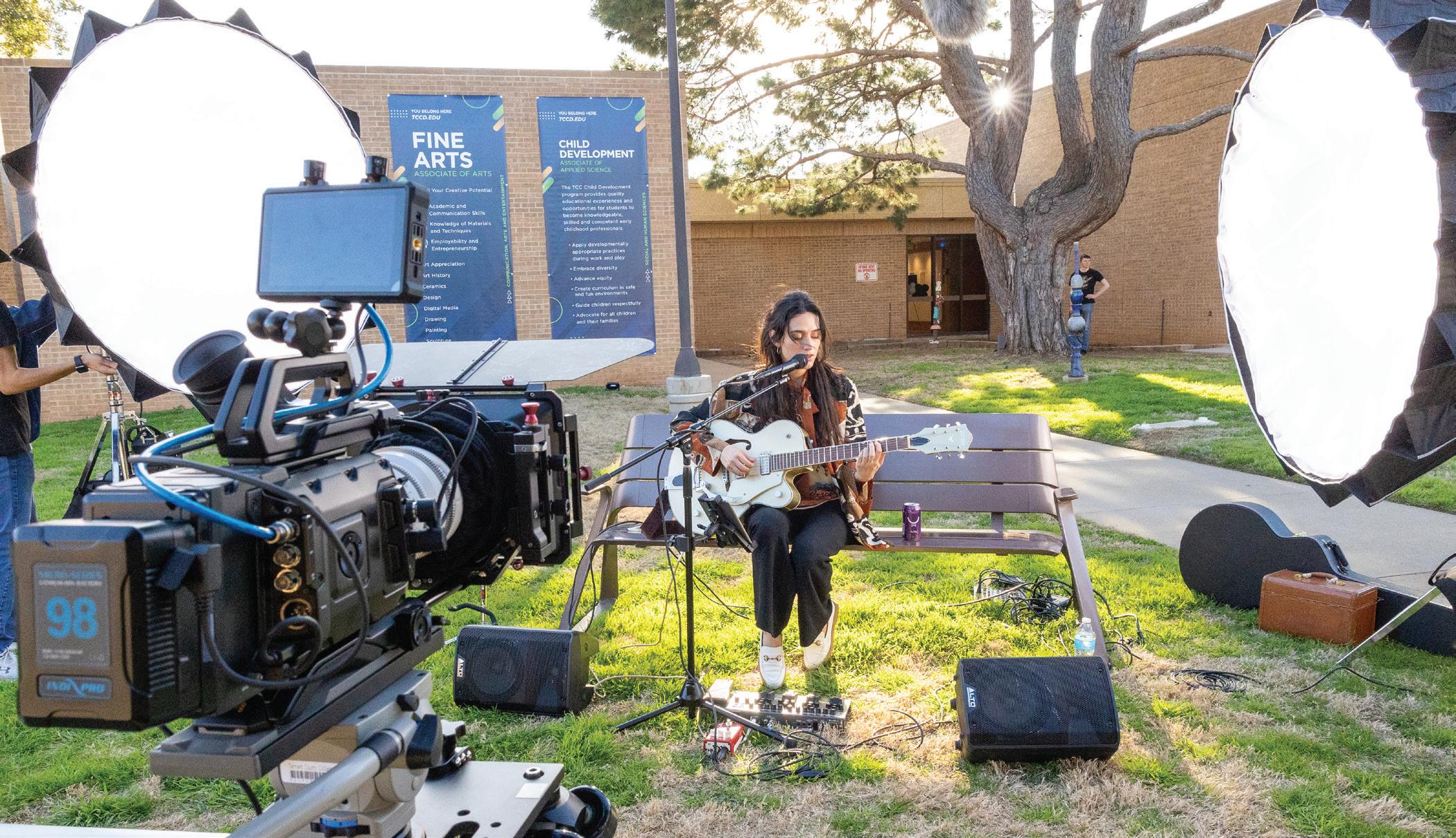
If the Water Gardens represented Fort Worth’s modern face, the Stockyards became Hollywood’s go-to location for legitimate Western atmosphere. In 1983, Dennis Quaid brought his struggling country singer character to life in Tough Enough, with pivotal scenes filmed at the venerable Cowtown Coliseum. The venue later would host George Strait’s acting debut in 1992’s Pure Country, cementing its reputation as a versatile filming location that could deliver genuine Texas charm.
The 1990s saw Fort Worth emerge as a major television production hub with Walker, Texas Ranger (1993-2001). The series, starring Chuck Norris, made the Tarrant County Courthouse its headquarters and turned the White Elephant Saloon into the fictional CD’s Bar & Grill. The show’s success proved Fort Worth could support long-term television production.
This momentum continued into the 2000s with Prison Break (2005-2009), which transformed the abandoned Swift and Armour meat packing plants into a Panamanian prison. The production left such an impact that guard towers and prison façades still stand on the property.
Fort Worth native Taylor Sheridan has revolutionized the city’s film industry. His
1883, the Yellowstone prequel series, used the Stockyards as its primary location for the first two episodes, bringing authentic period detail to the historic district. His film Hell or High Water, a modern-day Western, also was shot in Texas.
“You set something in modern-day Texas, which is so identifiable as the Old West, and everyone’s wearing guns, so it looks like it’s going to be, by default, partially considered a Western,” Sheridan said in an interview with IndieWire.
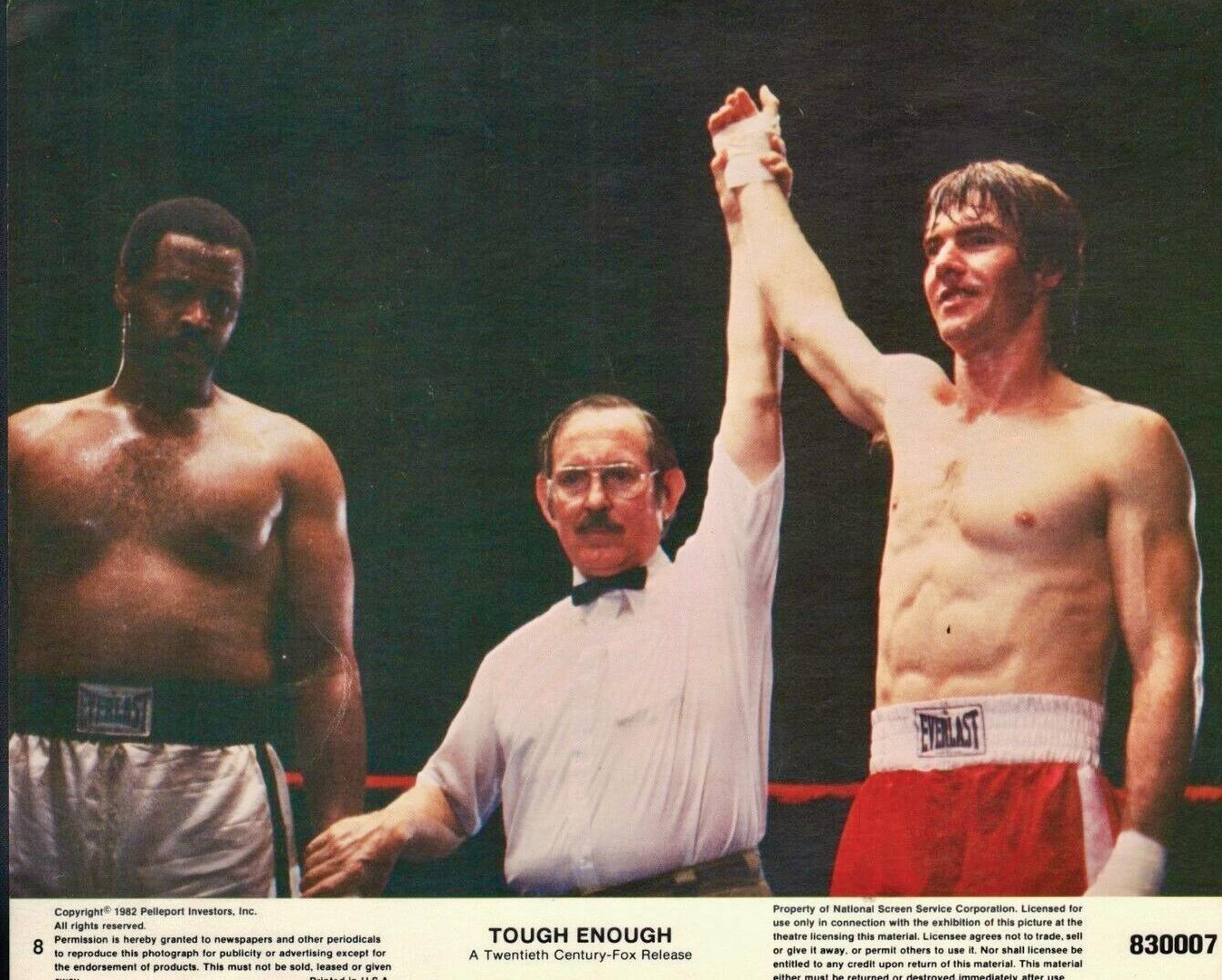
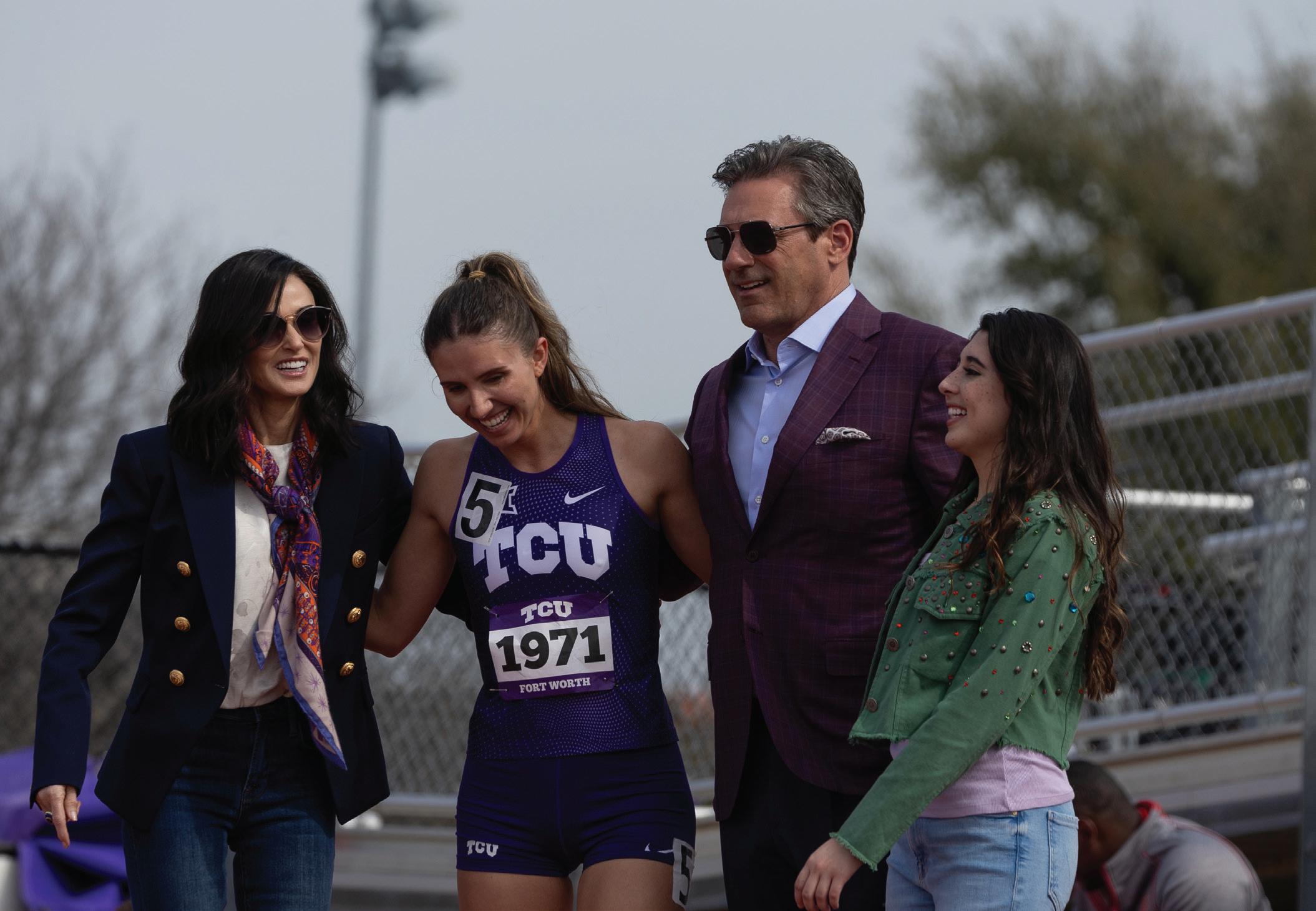
Hardy with Visit Fort Worth says Sheridan’s shows have helped to put Fort Worth on the moving pictures map, plus they have created jobs for local crew members and provided opportunities for residents to participate as background actors on set.
Sheridan’s commitment to authenticity extends beyond location choices. His production team runs “cowboy camps” where actors learn authentic ranching skills before filming begins. This dedication to realism has paid off.
His latest series, Landman, starring Billy Bob Thornton and Jon Hamm, has drawn nearly 15 million viewers while showcasing Fort Worth locations like Sundance Square Plaza, River Crest Country Club and Texas Christian University.
“Landman was the No. 3 most-streamed original series in 2024 with a total of 9.9 billion minutes watched,” Hardy says. “Our research shows that audience members who have watched Taylor Sheridan shows filmed in Fort Worth are more than twice as likely to visit the city versus those who have not.”
While blockbusters grab the headlines, Fort Worth has also quietly nurtured independent filmmaking. David Lowery’s haunting A Ghost Story (2017) used the construction site of the Frost Tower as a backdrop, while Channing Godfrey Peoples’ Miss Juneteenth (2020) captured the city’s contemporary culture and communities.
Establishing the Fort Worth Film Commission in 2015 marked a turning point, providing infrastructure for productions of all sizes. In 2023, the city doubled down on its film industry commitment by launching the Fort Worth Film Collaborative with Tarrant County College, creating a pipeline for local film crew talent.
“TCC has worked with the Fort Worth Film Commission as an active member of the Fort Worth Film Collaborative since its creation in 2023,” says Dr. Jan Clayton, interim president of TCC’s Northeast Campus. “The FW Film Collaborative consists of education, film and city representatives who meet regularly to explore ways to uplift film in this region.”
In 2024, collaborative members helped TCC execute both spring and fall film premieres, featuring two major 101 Studios projects along with activities to promote awareness and facilitate enrollment in the TCC film program. Several hundred people turned out for the programs, which showcased local film businesses and student talent.
“We plan to add four additional certificate programs in 2026 – Camera Department, Sound Department, Art Department and Costume Department,” Clayton says. “Through our Advisory Committee, we have gained knowledge about the foundational needs of the film community and the importance of establishing a consistent pipeline of trained and highly skilled graduates to fill key roles within this business.”
Logan's Run (1976)
• Starring: Michael York, Jenny Agutter
• Notable location: Fort Worth Water Gardens
• The Water Gardens were featured prominently in this science fiction film, representing an energy source for a dystopian city.
• Received Oscar nominations (for Best Cinematography and Best Set Decoration)
• Won a Special Achievement Award for Visual Effects
• The Water Gardens remain a popular tourist destination for fans of the film.
Tough Enough (1983)
• Starring: Dennis Quaid
• Notable location: Cowtown Coliseum in the Fort Worth Stockyards
• Plot centers around a struggling country/Western singer from Fort Worth
• Features scenes of amateur boxing filmed at the Cowtown Coliseum
1990s
Necessary Roughness (1991)
• Starring: Scott Bakula, Robert Loggia, Sinbad, Jason Bateman, Kathy Ireland
• Notable location: Billy Bob's Texas (guitar bar)
• Memorable bar fight scene between the fictional Texas State Fightin' Armadillos and University of Texas Colts was filmed here
Pure Country (1992)
• Starring: George Strait (acting debut)
• Notable locations:
• Billy Bob's Texas (men's restroom scene with Lesley Ann Warren)
• Cowtown Coliseum (final rodeo scene)
• The wrap party was held at Billy Bob's.
Walker, Texas Ranger (1993-2001) (TV series)
• Starring: Chuck Norris, Clarence Gilyard Jr.
• Notable locations
• Tarrant County Courthouse (served as Rangers headquarters)
• White Elephant Saloon (appeared as CD's Bar & Grill)
• Ran for nine seasons on CBS
2000s
Prison Break (2005-2009) (TV series)
• Starring: Wentworth Miller, Dominic Purcell
• Notable location:
• Swift and Armour meat packing plants
• The abandoned buildings became the Penitenciaría Federal de Sona for Season 3.
• Prison facade and guard towers from the production still remain on the property
2010s
My All American (2015)
• Starring: Finn Witrock, Aaron Eckhart
• Notable location: Texas Christian University's Amon Carter Stadium
• Biographical film about University of Texas safety Freddie Joe Steinmark
• Period piece focusing on the Longhorns' 1969 championship season
Texas Flip N Move (2015-present) (TV series)
• Airs on HGTV and DIY Network
• Filmed in neighborhoods throughout Fort Worth and Tarrant County
• Features house flippers renovating and moving condemned houses
Queen of the South (2016-present) (TV series)
• Notable locations:
• Stockyards Exchange Building (staged as Mexican orphanage)
• Swift and Armour meat packing plants (explosion scene)
• First three seasons set in Dallas with multiple Fort Worth filming locations
A Ghost Story (2017)
• Starring: Rooney Mara
• Notable locations:
• Frost Tower construction site in downtown Fort Worth
• Spiral Diner (with that vegan chocolate pie scene)
A Bad Idea Gone Wrong (2017)
• Notable locations:
• Fort Worth mansion (primary location)
• Ol' South Pancake House
• Tony's Pizza (now closed)
• Filmed entirely in Fort Worth in 17 days
The Chosen (2017-present) (TV series)
• Religious programming on the life of Christ
• Filmed at Capernaum Studios in nearby Weatherford
• Sourced crew from Fort Worth
The Old Man & the Gun (2018)
• Notable locations:
• Double F River Ranch
• Fort Worth Stockyards
• T&P Station
• Leonard's Subway tunnel
• Tarrant County College
• Former Tarrant County Jail
• Three local banks
• Near South Studios
• Production office based at Near South Studios
Never Goin' Back (2018)
• Notable locations:
• Former Tarrant County Jail
• Tarrant County Court house steps
• Fort Worth Central Station bus stop
• Former Chicken Express
The Last Whistle (2019)
• Notable locations:
• Lonesome Dove Bistro
• Tarrant County Court house
• Cross-Eyed Moose antique store in the Stockyards
• All Saints’ Episcopal School
Vindication (2019-present) (TV series)
• Faith-based crime drama
• Filmed in various Tarrant County locations
• Used vacant office buildings and homes throughout Fort Worth
One of a Kind (2019-present) (TV series)
• HGTV series featuring Fort Worth designer Grace Mitchell
• Each episode showcases a different Fort Worth home
• Focuses on unique home transformations
2020s
Miss Juneteenth (2020)
• Filmed entirely in Fort Worth
• Centers around the local Miss Juneteenth pageant
• Showcases several Fort Worth locations
The Senior (2021)
• Starring Michael Chiklis
• Shot in Fort Worth and Oklahoma City
• A man returns to play college football 40 years after being kicked off the team
1883 (2021) (TV series)
• Yellowstone prequel series
• Created by Taylor Sheridan
• Notable location: Fort Worth Stockyards (first two episodes)
12 Mighty Orphans (2021)
• Filmed in Weatherford and Fort Worth
• Based on the nonfiction book Twelve Mighty Orphans: The Inspiring True Story of the Mighty Mites Who Ruled Texas Football by Jim Dent. The book is based on the
Masonic School for Orphans in Fort Worth.
• Notable location: Ridglea Theater in Fort Worth
Landman (2024) (TV series)
• Created by Taylor Sheridan
• Starring: Billy Bob Thornton, Demi Moore, Jon Hamm
• Notable Locations:
• Sundance Square Plaza
• River Crest Country Club
• Texas Christian University
• Garnered nearly 15 million viewers
Lawmen: Bass Reeves (2024) (TV series)
• Created by Taylor Sheridan
• Filmed in Weatherford, Fort Worth and other North Texas locales
• Follows the real-life story of the American law enforcement official, Bass Reeves, played by David Oyelowo
• Filmed partly on Sheridan’s Bosque Ranch in Weatherford
Lioness Season 2 (2024) (TV series)
• Created by Taylor Sheridan
• Starring: Jill Wagner and Zoe Saldana
• Filmed largely in Fort Worth
• Spy drama following a young Marine
• Showcases multiple Fort Worth locations
Notable Recurring Locations
• Fort Worth Water Gardens
• Cowtown Coliseum
• Billy Bob's Texas
• Tarrant County Courthouse
• Fort Worth Stockyards
• Swift and Armour meat packing plants
• Tarrant County Jail (former)
ECONOMIC IMPACT
• Since the Fort Worth Film Commission's founding in 2015, film productions have generated hundreds of millions of dollars for the local economy.
• Taylor Sheridan's 101 Studios alone has booked 75,000 hotel nights in Fort Worth since 2021.
• The Film Commission supports productions of all sizes, from indie films to major studio projects.
• The city has become particularly associated with Sheridan's productions, which emphasize authenticity in their portrayal of Western and Texas life.
• Productions use "cowboy camps" to train actors in genuine Western skills before filming.

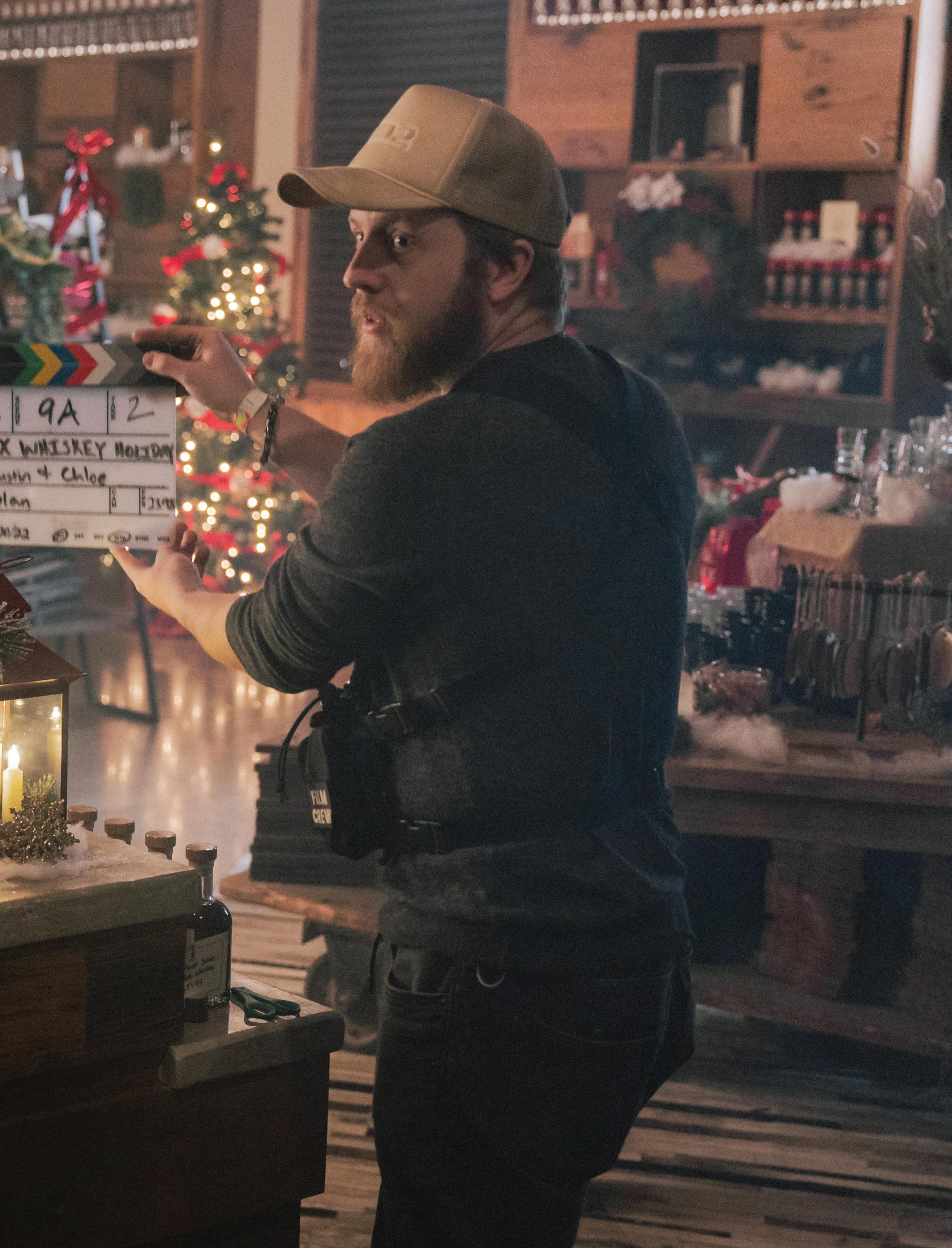
Cowtown and its film commission have earned a place on the movie industry map. by tom delamater
“When you think about TV and film production, you think of Los Angeles, you think of New York, you think of Atlanta
and you think of Fort
Sound preposterous? Don’t try telling Dustin McLaughlin that. Those are his words, and he means every one of them.
McLaughlin is co-founder of Twelve Midnight, a Fort Worthbased video production company. He’s also one of the new entrepreneurs propelling the city and region to dizzying achievements in the film and television industry.
Over the past decade, Fort Worth’s star has risen ever higher in the North Texas sky. No longer content to live in the shadow of its larger (for now) neighbor to the east, the city has staked its own claim as a center of industry and agriculture, sure, but of commerce, culture and entertainment, too.
Part of that claim involves the city’s fastgrowing reputation in television and film. It’s a development that didn’t occur by chance.
Fort Worth’s association with the entertainment industry dates to the early 20th century and includes numerous, if scattered, Hollywood box office premieres, the occasional filming of scenes for major motion pictures and the production of made-for-television movies.
Things began to change with creation of the Fort Worth Film Commission in 2015. Part of Visit Fort Worth, the city’s convention and visitors bureau, the film commission has been a catalyst for the burgeoning television and film industry in Fort Worth and Tarrant County.
“Ten years ago, we were the only major city in Texas that didn’t have a film commission,” says Taylor Hardy, Visit Fort Worth’s film commissioner. “There was a lot of production taking place in Dallas and other cities, but no one advocating for Fort Worth and our locations.”
In the decade since its inception, the commission has helped attract more than 1,000 projects that have generated more than $700 million in economic impact and supported over 30,000 jobs in Fort Worth and Tarrant County.
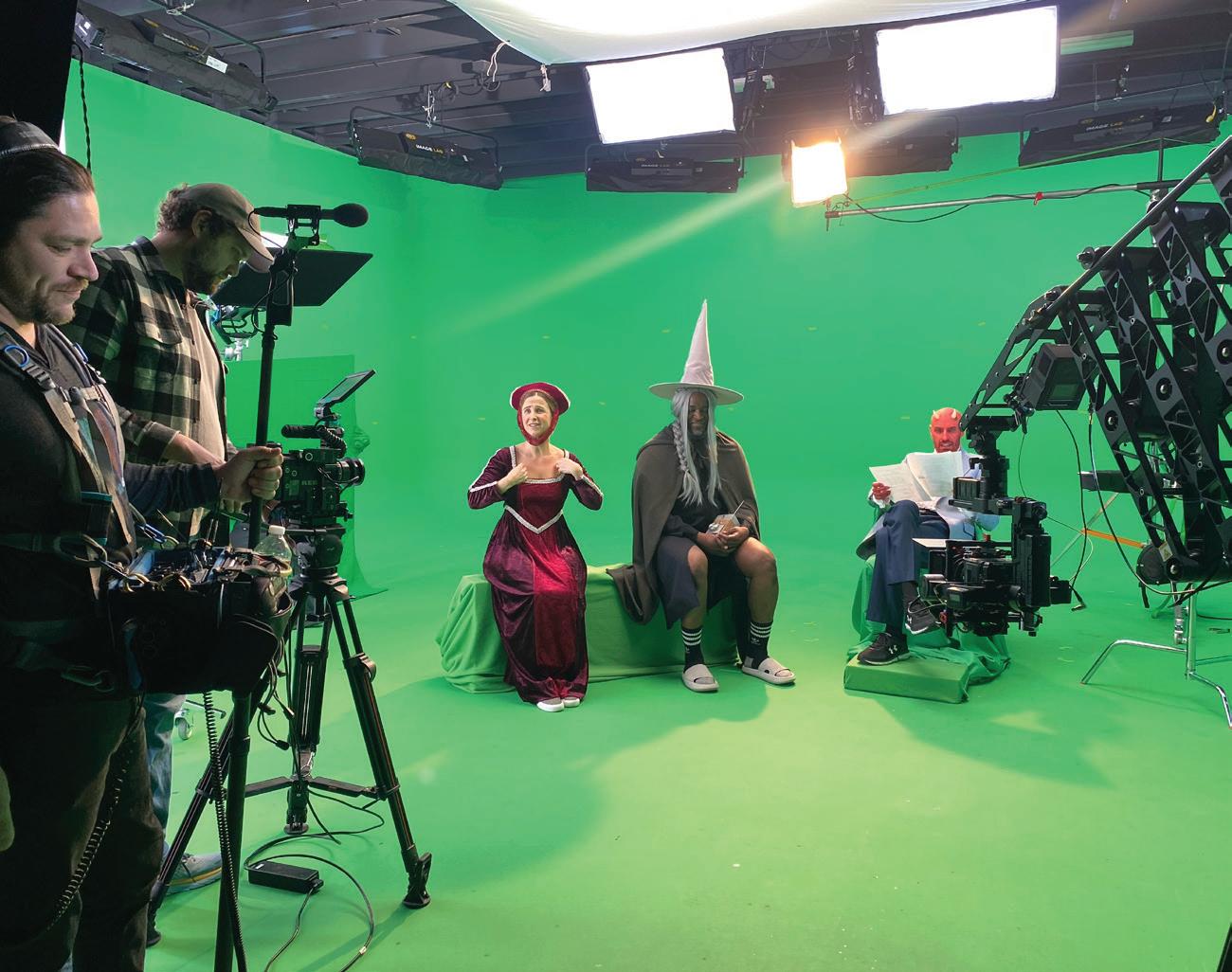
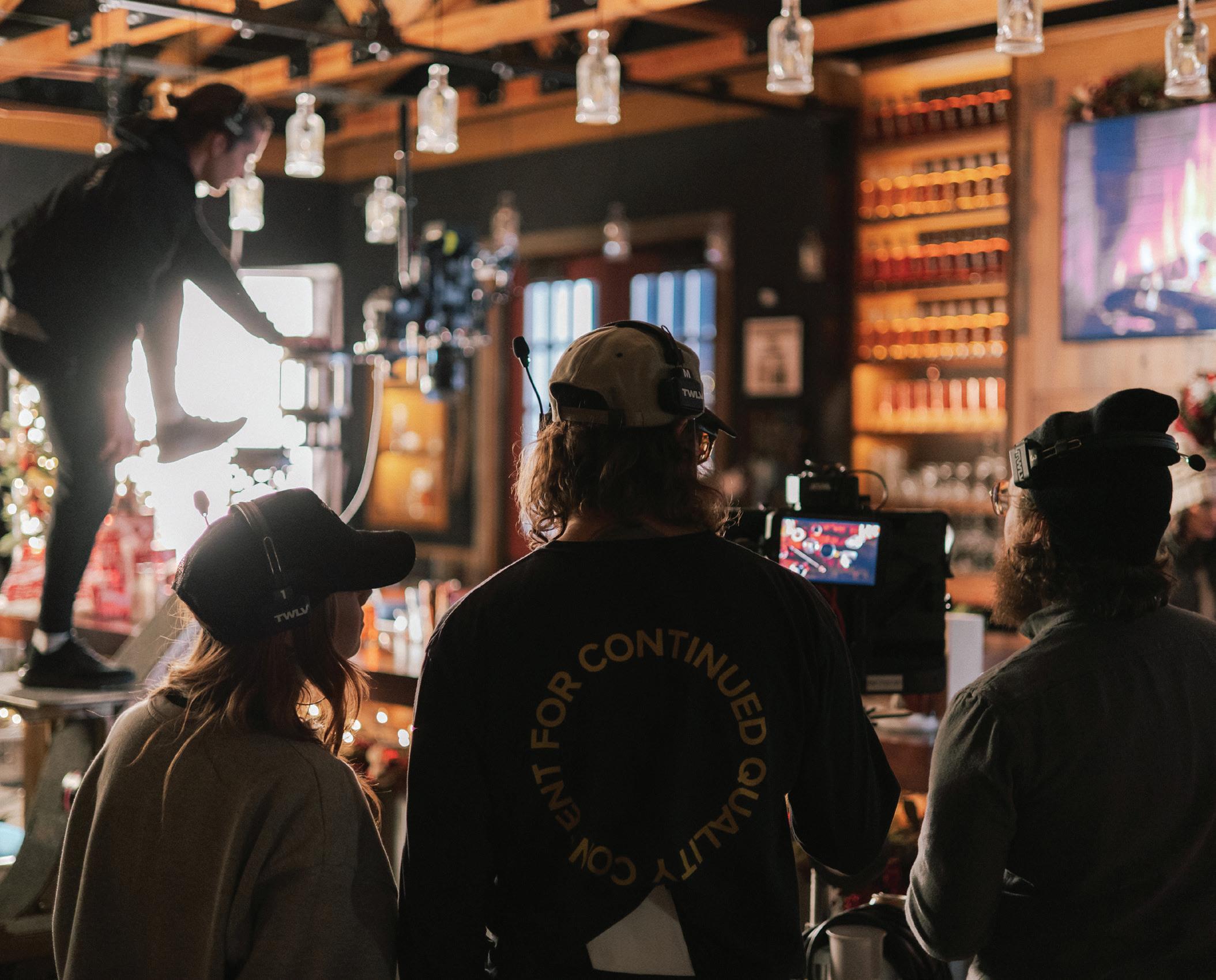
The growth has been so rapid and noticeable that MovieMaker magazine recently named Fort Worth to its list of “Best Places to Live and Work as a Moviemaker in 2025.”
“A lot of what we do is help showcase Fort Worth as a welcoming place for studios to film their projects,” Hardy says. “We help with everything from obtaining necessary permits and finding ideal locations to connecting them with local production facilities and securing special rates at local hotels for members of their cast and crew.
“We understand that film is a business and that production companies are going to choose a location that makes sense financially. We want that location to be Fort Worth.”
That approach is working. Since 2021 alone, popular Paramount+ series such as 1883, Lawmen: Bass Reeves , Landman and Special Ops: Lioness have filmed at locations in and around Fort Worth. The shows, from the stable of Yellowstone creator Taylor Sheridan, have pumped about $325 million into the region.
Hardy and others in Fort Worth and the state are confident it’s just the beginning of what’s to come.
According to the U.S. Census Bureau, almost a million people live in Fort Worth, making it the 12th-largest city in the United States. It added more than 70,000 residents from 2020 to 2024 and recently passed Austin as Texas’ fourth-largest city behind Houston, San Antonio and Dallas.
“Fort Worth is beautifully situated, smack dab in the center of the country,” says Ian Loomer, president of the Dallas Producers Association (DPA), an advocacy organization for visual media professionals in North Texas. “We have a major international airport that is incredibly convenient to get in and out of, a lot of space for production and a lot of land for growth.”
DPA has joined the Fort Worth Film Commission and other organizations to lobby Texas lawmakers on the industry’s behalf, seeking incentives to bring more film and television productions to the state.
In 2007, the Legislature created the Texas Moving Image Industry Incentive Program (TMIIIP), which is designed to help build the economy and create jobs through film, television and other visual image projects.
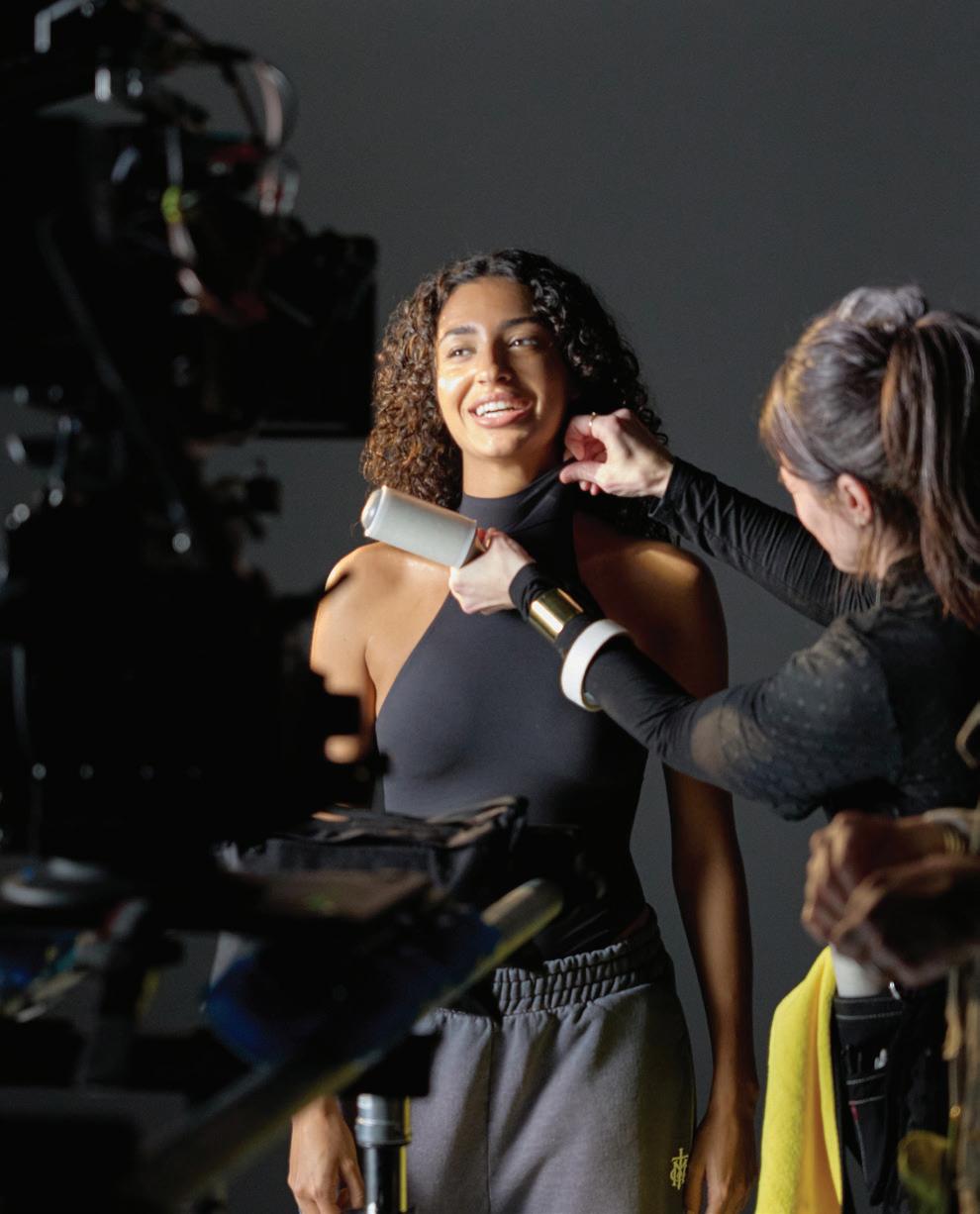
Offered in addition to the state’s sales tax exemptions, TMIIIP provides cash grants to production companies based on a percentage of a project’s expenditures in Texas.
“They’re required to have at least 55 percent of their cast and crew made up of Texas residents to receive the grants,” Hardy says, and 60% of the production must be completed in the state.
An additional $200 million was allocated in 2023 to cover productions through August 2025. In all, the program’s instate requirements appear to be a positive thing for production companies.
“I would stack up Texas crews against those from any other state, any day,” Loomer says. “They’re a different breed with a different attitude.”
McLaughlin calls it a “can do” attitude, especially in Fort Worth. “The city and the industry here have a certain energy about them that is really exciting,” he says. “There’s a lot of competition for production projects, but at the same time, everybody’s willing to work together and support one another.”
In addition to TMIIIP, the Media Production Development Zone Act, passed by the Legislature in 2009, is administered by the Texas Film Commission and provides a tax exemption to build and expand production facilities and locations for up to two years. Animation and CGI studios, post-production facilities, sound stages,
“I’m excited to see what the next five years holds for us. It looks like the Legislature might double or even triple the funding for film and television projects in the next session, so I think we’re going to see a lot of growth in a short amount of time.”
— Taylor Hardy FILM COMMISSIONER, VISIT FORT WORTH
video game development studios and production offices are all eligible.
That’s good news for companies like Trilogy Studios. The Fort Worth production house specializes in virtual production with three state-of-the-art LED volume stages, including Texas’ largest cinematic volume stage, which measures a massive 157 feet long and 23 feet high.
Virtual production screens display computer-generated imagery in real time, allowing actors to perform against a
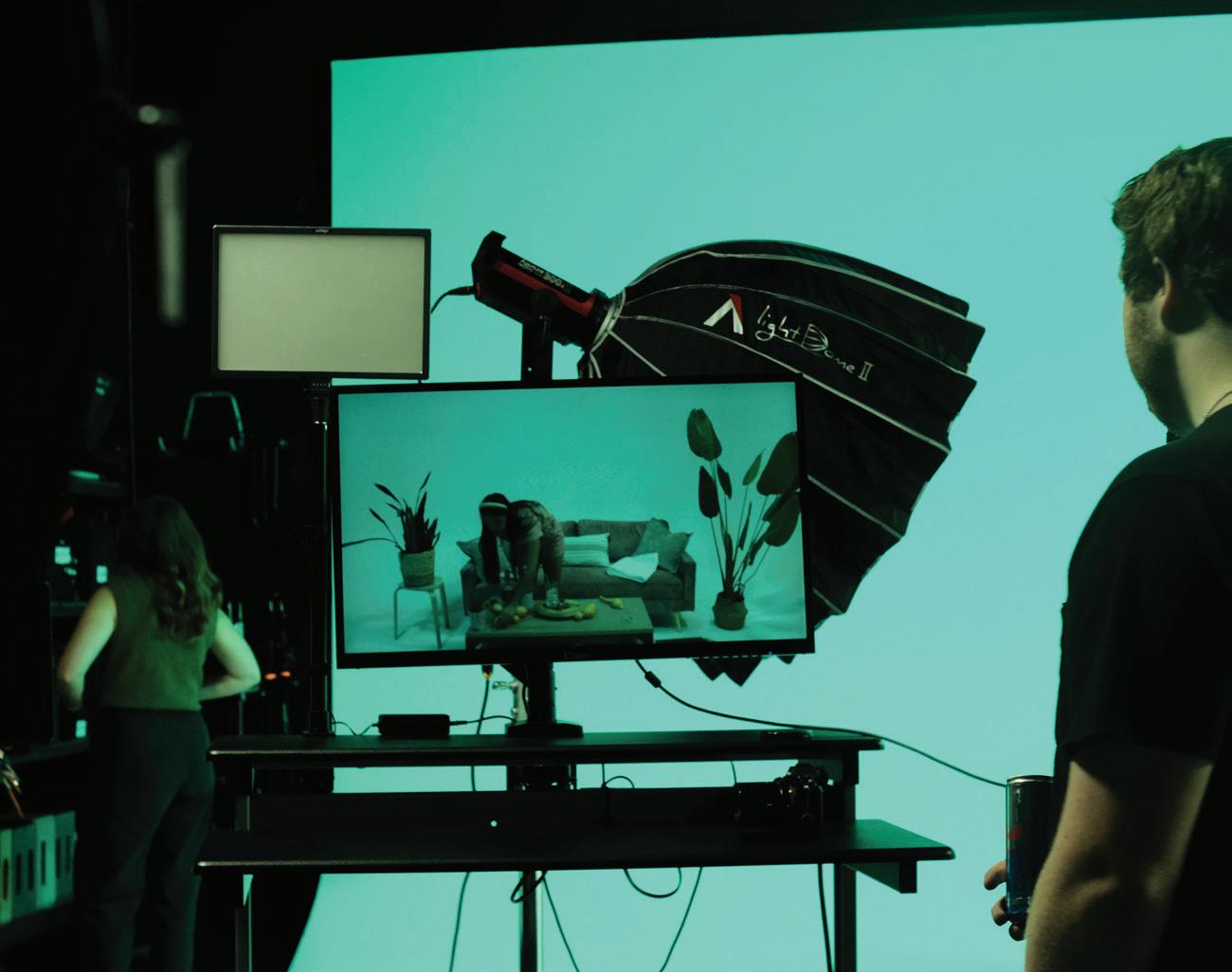
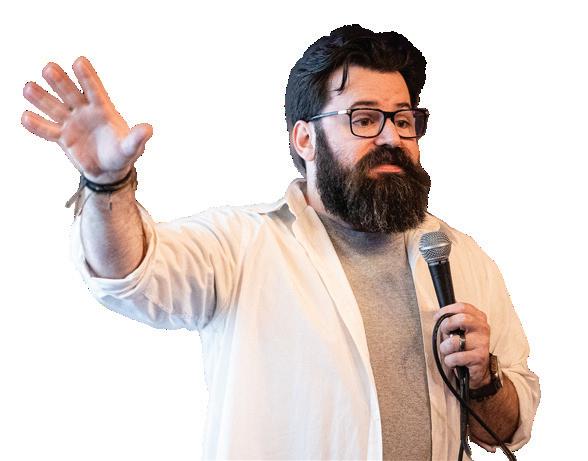
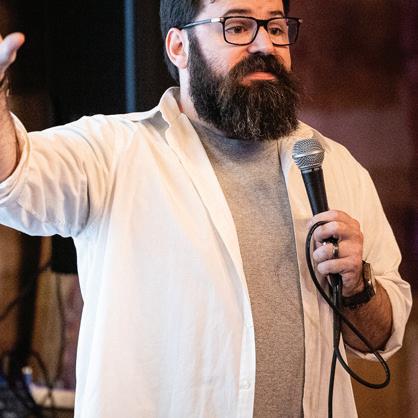
Ian Loomer PRESIDENT
PRODUCERS ASSOCIATION

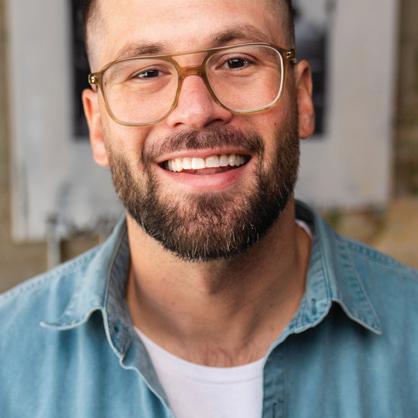
Dustin McLaughlin CO-FOUNDER
TWELVE MIDNIGHT
dynamic backdrop that reacts to camera movements and lighting changes to create a seamless visual effect. It not only substitutes for onsite filming but also replaces the practice of filming against a green screen and adding effects later.
“Producers tell us they thought they had to go to Los Angeles or Atlanta to learn about this new technology, but now they can come here and utilize it for large-scale productions,” says Taylor Tucker, Trilogy’s business development manager. “We’re optimistic that it will bring even bigger projects here in the future.”
Hardy says companies like Trilogy that choose to locate in Fort Worth are an indication of the city’s stature and influence in the industry. “It’s one of the largest production facilities in the country, let alone the state,” she says. “Businesses like Trilogy are turning this area into a real hub for film projects.”
To help meet Fort Worth’s growing need for trained film industry crews, the Film Commission partnered with Tarrant County College to create a fast-track professional certification program.
The Fort Worth Film Collaborative offers certificates in grip and lighting, hair and makeup, and light commercial construction. Tuition ranges from $50 to $300, depending on the course, and enrollment has grown to more than 200 students in just two years.
“When we contacted local colleges and universities about creating a program, TCC said they’d love to help,” Hardy says. “It came together quickly, and they’ve been great to work with.”
The program also drew the support of a major player in the film industry: 101 Studios, a global entertainment powerhouse located in Studio City, California. The company has produced such streaming megahits as Landman, Tulsa King, Mayor of Kingstown and 1923


Hardy FILM COMMISSIONER
VISIT FORT WORTH
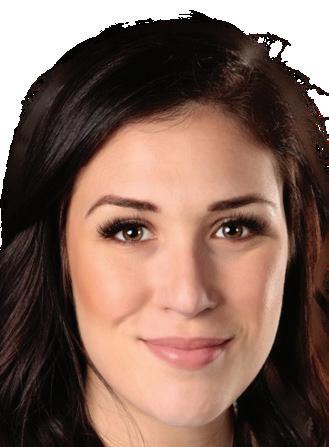
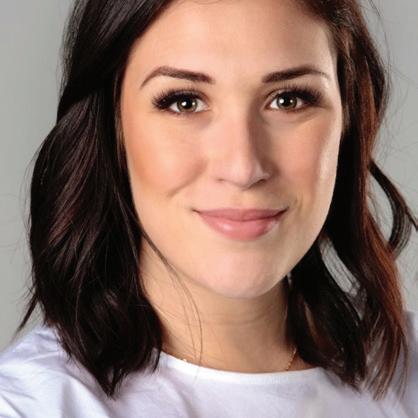
Tucker BUSINESS DEVELOPMENT MANAGER
“101 is a fantastic partner and is committed to hiring these students after they’ve completed a certificate program,” Hardy says. “Companies are looking to hire local crews when they come to Fort Worth, so we’re working to build up that workforce and make sure people are trained and ready to go out on set.”
Loomer believes TCC’s certificate program indicates the broader interest he has seen from North Texas colleges and universities in the film industry.
“A lot of schools here are looking at the future of film and video and want to know more about it,” he says. “It’s encouraging to see the collegiate world acknowledge the impact and potential workforce implications this will have.”
For Hardy and other key players in the local film industry, Fort Worth’s best days lie yet ahead.
“I”m excited to see what the next five years holds for us,” she says. “It looks like the Legislature might double or even triple the funding for film and television projects in the next session, so I think we’re going to see a lot of growth in a short amount of time.”
Tucker says the growth that has already occurred has put Fort Worth squarely on the film industry map. “It’s been exciting to see it grow into a bigger stage with bigger shows and bigger budgets. It has brought so much work and excitement to the region,” she says. “That’s what we all want, is for this industry to continue to grow so the major film studios understand what Texas and Fort Worth have to offer.”
That’s why McLaughlin says people in the film industry now include Fort Worth on their lists of top shooting locations. “We’re one of the production hubs,” he says. “It’s been incredible to be a part of that growth, and I can’t wait to see what’s next.”

Take a look at the key providers in the local production space.
“There are so many of us in the industry now that we have a really solid network of professionals in North Texas,” says Dustin McLaughlin, co-founder of Twelve Midnight, a creative and production agency.
Some of the companies and organizations driving the North Texas film, television and commercial industry:
Cinelease is a leading provider of sound stages, lighting and grip equipment, power distribution, truck packages and more for small- and large-scale film and television productions. It supports a range of products, from independent films to major studio projects. Founded in Los Angeles in 1977, Cinelease has locations nationwide, including one in Fort Worth. cinelease.com
Trilogy Studios, based in Fort Worth, is a virtual production studio offering three LED volume stages that combine physical and digital elements to create immersive, real-time environments for film, television, photography and other types of visual media. Production teams and talent can interact with CGI elements during actual production, rather than having those elements added during post-production. trilogystudios.com
Panavision is a provider of end-to-end services and solutions that power the creative vision of filmmakers with highprecision camera systems, lenses, grip, lighting, stage facilities and post-production services. Panavision has offices around the world, including locations in Irving and Houston. panavision.com
Twelve Midnight is a Fort Worth-based creative and production agency specializing in creating compelling visual content through video production, animation, brand storytelling and motion design. Services include concept development, creative services, scriptwriting, production, motion, design and post-production. twelve-midnight.com
MPS Studios provides everything from studio space to camera and equipment rentals. Known for its comprehensive resources and experienced staff, MPS offers lighting, grip, electrical equipment and on-site repair, among other services. It provides studio space in Dallas and camera and lighting equipment in Austin. mpsfilm.com
Lowtown Studios, located in Fort Worth, is a full-production outfit offering photography, video and animation services. It can provide multiple sound stages, production services and studio space for film, television and commercial projects. Lowtown also works with content creators to bring their projects to life. lowtownstudios.com
The Dallas Producers Association is a professional trade organization that promotes the film, television and digital media production industry in DFW. It offers monthly social events, educational panels and other networking opportunities for members. Its annual Texas Production Expo showcases production services and technology in North Texas and takes place this year on May 22 at the Grapevine Convention Center. dallasproducers.org

The Lone Star State has always attracted filmmakers captivated by its stunning vistas, shining cities, vast ranchlands and skies that go on forever. But as an added lure, the Texas Moving Image Industry Incentive Program (TMIIIP) was established in 2007 to build the economy through the moving image industry by creating jobs. The program is not just for feature films that come to the area, like The Senior, or television shows such Walker, Texas Ranger, 1883 and Fear the Walking Dead. TMIIIP also helps attract commercials, video games, animation, visual effects and extended reality (AR, VR, MR) productions while ensuring that Texas residents—specifically, Tarrant County residents— are guaranteed jobs and revenue from the productions that film in the state.
Between Sept. 1, 2007, and Aug. 31, 2024, TMIIIP has resulted in $2.52 billion in state spending and 189,000 jobs created instate, according to Texas Economic Development & Tourism
Executive Director Adriana Cruz. And the incentives have produced a 469% return on investment: For every dollar spent on the program, $4.69 is spent in Texas.
To qualify for the program, film and TV projects must spend at least $250,000 in the state; commercial and video game projects need to meet a $100,000 threshold. Productions must hire at least 55% of their cast and crew from Texas, and 60% of the production days must be completed in-state. Grants vary by budget levels and size of productions, and they’re based on a percentage of a project’s eligible Texas expenditures, including eligible wages paid to Texas residents. Projects must document and submit their eligible in-state spending, and that documentation is audited before any grant payment is issued. Only wages paid to Texas residents and spending at Texas businesses qualify for the grant.
including
was located in the
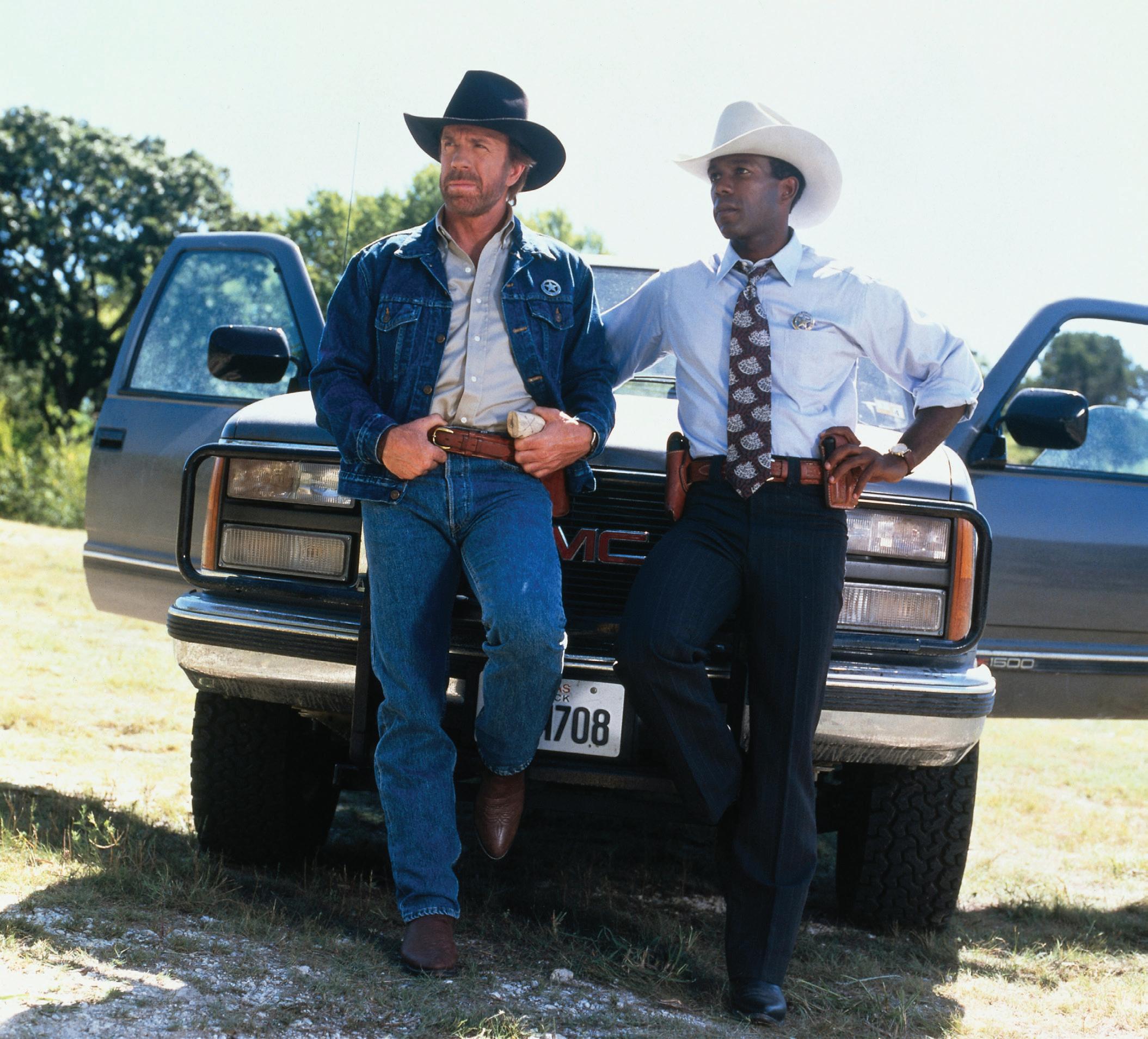
Productions that qualify for the program, which the Texas Film Commission oversees, can anticipate returns up to 22.5%; an additional one-time 2.5% return is available for productions that work in underserved and disadvantaged areas, hire crew from those areas or utilize in-state postproduction services.
While not part of the grant program, Texas also offers upfront tax exemptions on most items rented or purchased for direct use in production, refunds of the state occupancy tax on hotel rooms occupied for more than 30 consecutive days, and refunds on the fuel tax paid on fuel used off-road. Some municipalities, like Fort Worth, also may offer production incentives that supplement TMIIIP.
For example, The Senior, a film starring Michael Chiklis, spent $1.2 million filming in Dallas-Fort Worth and in West Texas for 38 days, and it hired 422 Texas residents as cast
and crew. It received a TMIIIP grant of $150,000. The TV western 1883 spent $44 million in-state and employed 1,955 Texans in 2023, receiving a grant payment of $10 million.
The video game Redfall spent $7.9 million and hired 73 Texas developers during its 371-day production, and it received a $1.5 million incentive.
While the program is designed to promote productions statewide, work has been centered in Tarrant, Dallas, Travis, Harris and Bexar counties, although more than 20 Texas counties have been used as production locations.
A further benefit is that producers who work in the state, like Weatherford-based Taylor Sheridan, who made Yellowstone and its prequels, 1883 and 1923 , are helping encourage Texans to enter the film industry. Sheridan used one of his incentives to put Tarrant County College students on the payroll, training them to work as film crew technicians and hiring all of the graduates of the program.

Celebrity talk show host Dr. Phil finds a home for his Merit Street Media in Fort Worth. by terri marshall
Introduced to the American public on The Oprah Winfrey Show, Dr. Phil McGraw became a household name and a daytime TV icon. He launched his own talk show from his Hollywood studio and provided his unique style of no-nonsense life advice to guests facing distressing life challenges for two decades before stepping away from his namesake show in 2023.
Shortly afterward, McGraw traded Hollywood for the Dallas-Fort Worth area, where he launched Merit Street Media as a fully distributed, multi-platform cable satellite and free over-the-air broadcast media brand. It boasts a state-of-the-art broadcast center spanning over five acres and offers news and entertainment programming.
Merit Street Media’s mission is to seek common ground through clarity and common sense, providing traditional family content while also disrupting the news landscape with unbiased reporting on issues that matter most to Americans. The network focuses on promoting American values, delivering insightful news, celebrating accomplishments and strengthening family bonds. The brand strives to provide positive, engaging and informative content to audiences nationwide, leaving them inspired and enlightened.
The focus of Merit Street Media played a role in McGraw’s decision to build his new network in the Dallas-Fort Worth area.
“I thought it was crucial to come back to middle America to talk about things that I think are really important to the
“I love this place. I’ve got great friends out here. We have a beautiful home here, and we’ll keep it. So being here feels right to me.”

core of this country,” he says. “I love this place. I’ve got great friends out here. We have a beautiful home here, and we’ll keep it. So being here feels right to me.”
McGraw didn’t make the move alone. Over a dozen of his Los Angeles staff traded California life for Texas to continue working with him. Merit Street Media has also hired many locals as the company continues to grow.
Content 24/7 leverages the brand’s national reach. “We are thrilled to create a widely accessible network with diverse, engaging content,” says chief operating officer Joe Cheatwood.
Dr. Phil Primetime anchors the brand and airs nightly at 7 p.m. CST. The program follows the familiar format of McGraw’s former talk show.
“It all begins and ends with real people dealing with these issues for real, using common sense, fact-based information and action plans to create results,” he says. In addition to Dr. Phil Primetime, McGraw hosts Dr. Phil True Crime, which provides an analysis of real crime cases.
Merit Street Media also features Morning on Merit Street, a two-hour news and lifestyle program. Award-winning journalist Fanchon Stinger leads the Morning on Merit Street
team and shares a variety of fitness, health and financial tips, among other topics.
On weeknights, The News on Merit Street turns the top headlines into complete stories with senior anchor Kris Gutierrez and co-hosts Lyndsay Keith and Loni Coombs, taking a deeper dive into the facts to dispel misinformation.
On Crime Stories with Nancy Grace, the former prosecutor explores the inside stories of criminal activity, and Steve Harvey takes a humorous approach to the everyday problems of the people the popular comedian interviews.
Special series include Mike Rowe: Somebody’s Gotta Do It, which introduces viewers to men and women who march to the beat of a different drum.
When Merit Street Media launched in April 2024, it had commitments exceeding 65 million television homes, and pending agreements were expected to increase that number. This positioning made it one of the most widely distributed start-up networks in history. Merit Street Media’s first year has proven successful, reaching approximately 90 million homes nationwide.


With projects booming and the possibility of film incentives increasing, Texas may be the film industry’s next new hub. by
There’s plenty to talk about when it comes to the Dallas-Fort Worth film industry. The beginning of the year saw the grand reopening of South Side Studios in Dallas. The renovated facility now includes three sound stages, green rooms, a mill shop and an LED wall. And that’s only phase one.
But it’s not just the Dallas film industry that’s booming. Fort Worth is joining the party. The Fort Worth Film Commission has worked on more than 1,000 projects and supported over 30,000 jobs since its founding in 2015.
“What is cool is that it’s not just Dallas anymore,” says Mary Collins, the president of Mary Collins Agency in Dallas. “It’s now Dallas/Fort Worth, it really is, because for a long time Fort Worth was not into that much production. But they’ve really put it in gear. I like to think of us as just one big production center.”
Many factors contribute to the rising film industry in DFW, but one man certainly has made a difference. Western TV and film creator Taylor Sheridan is bringing loads of projects to Texas.
Actor and Arlington native Kenneisha Thompson portrayed Dora in Sheridan’s series Lawmen: Bass Reeves, which was filmed in North Texas, including Fort Worth. She says the crew and producers made the project unforgettable.
As a Black woman, Thompson has worked with people who didn’t know how to style her hair and makeup. She often must bring her own products to fix her appearance. But that wasn’t the case on the Lawmen set.
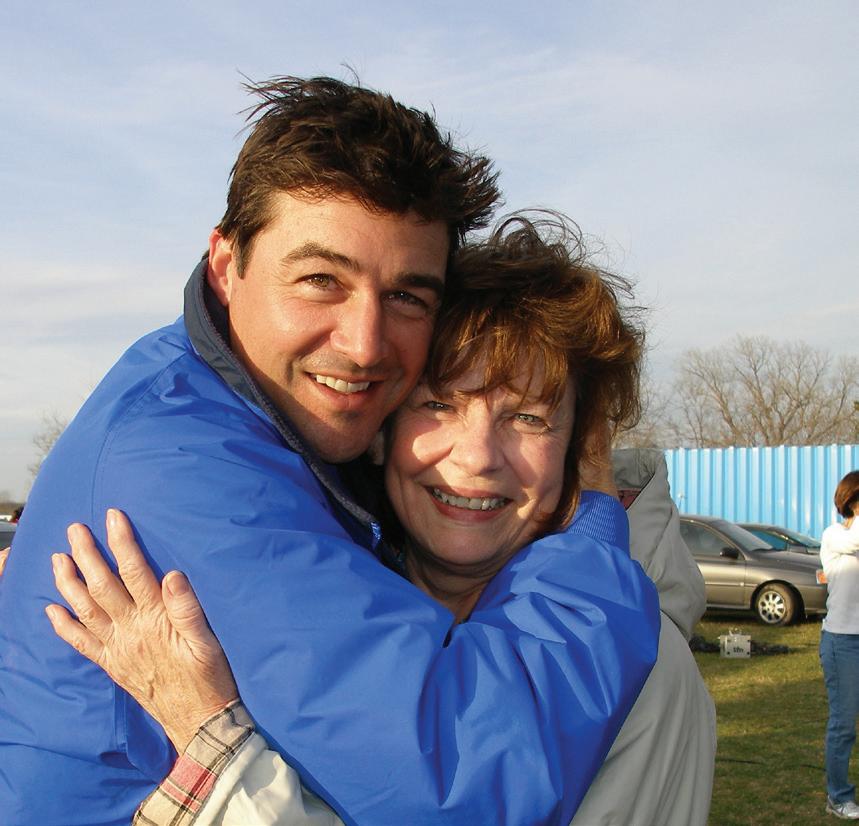
“We’re hoping that, because we’re such a large state and know how to do this, we will become one of the major states if not the top state over the next several years.”
— Mary Collins PRESIDENT, MARY COLLINS AGENCY
Seeing Black women braiding hair and styling wigs for the actors brought Thompson to tears. Here, Black people weren’t forgotten and discarded. Instead, they were being cared for in a way Thompson wasn’t used to.
“That was my favorite experience,” she says. “I felt seen in a way that I’ve never been seen before.”
Thompson also fondly remembers working with executive producer Jessica Oyelowo. In one scene, Thompson had to shoot an 1800s replica gun. Oyelowo took her aside and helped her choreograph the moment so she landed in the correct position.
There was no hierarchy on set. They all felt like a family.
“The fact that she worked with me specifically, it made me feel important,” Thompson says. “It made me feel like I was part of something bigger than myself.”
Texas actor Louanne Stephens also has worked on a Taylor Sheridan project. In 2024-2025, she appeared in three episodes of Landman, which was primarily filmed in Fort Worth.
On set, she got to work with local talent and crew. Her other Texas projects include a Head and Shoulders commercial with Kansas City Chiefs quarterback Patrick Mahomes and former Pittsburgh Steelers safety Troy Polamalu, and the iconic Friday Night Lights
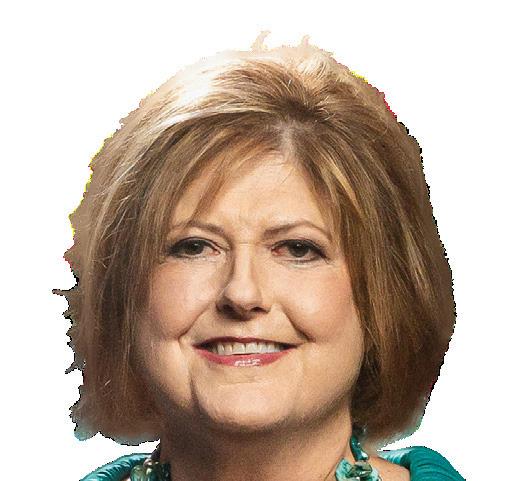
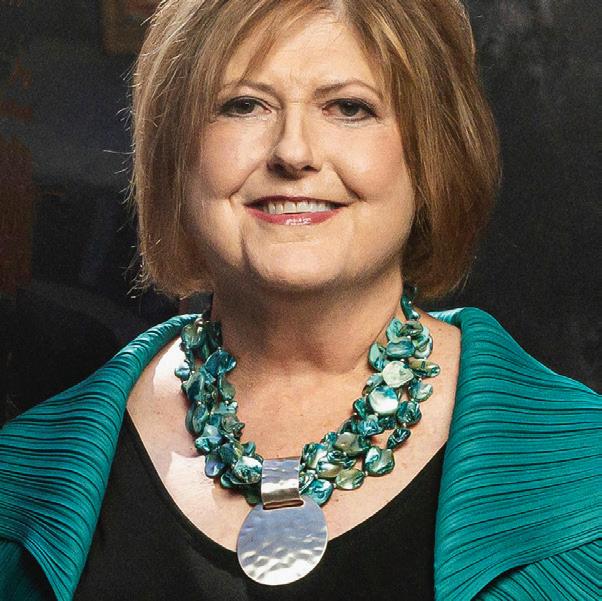
If you need any convincing about the importance of film incentives, listen to Matthew McConaughey. In a video promoting the Texas Moving Image Industry Incentive Program, he explains it perfectly: “Productions happen where incentives are.”
TMIIIP provides a cash grant based on a percentage of a project’s eligible Texas expenditures (see story on page 27). For film and TV, 55% of paid crew and 55% of paid cast members must be Texas residents, and 60% of the production must be completed in Texas. Now, the Texas Senate has proposed to inject $498 million into the program, which would more than double what lawmakers invested during the last budget cycle.
“It would change so many of our lives,” Stephens says. “We would have auditions all the time like they do in New Mexico, Georgia and Oklahoma.”
The goal is to bring more opportunities to Texas and the talented crew and actors in the state. However, many projects cast leads from out of state, leaving the background and day player roles to the local talent.
“The opportunity is still not enough to go around,” Thompson says. “So you have to be prepared and make sure you are on point, that your tapes look good, that your resume is together, all of your stuff is together, and that you’re performing at the highest level. That’s the responsibility that we are on.”
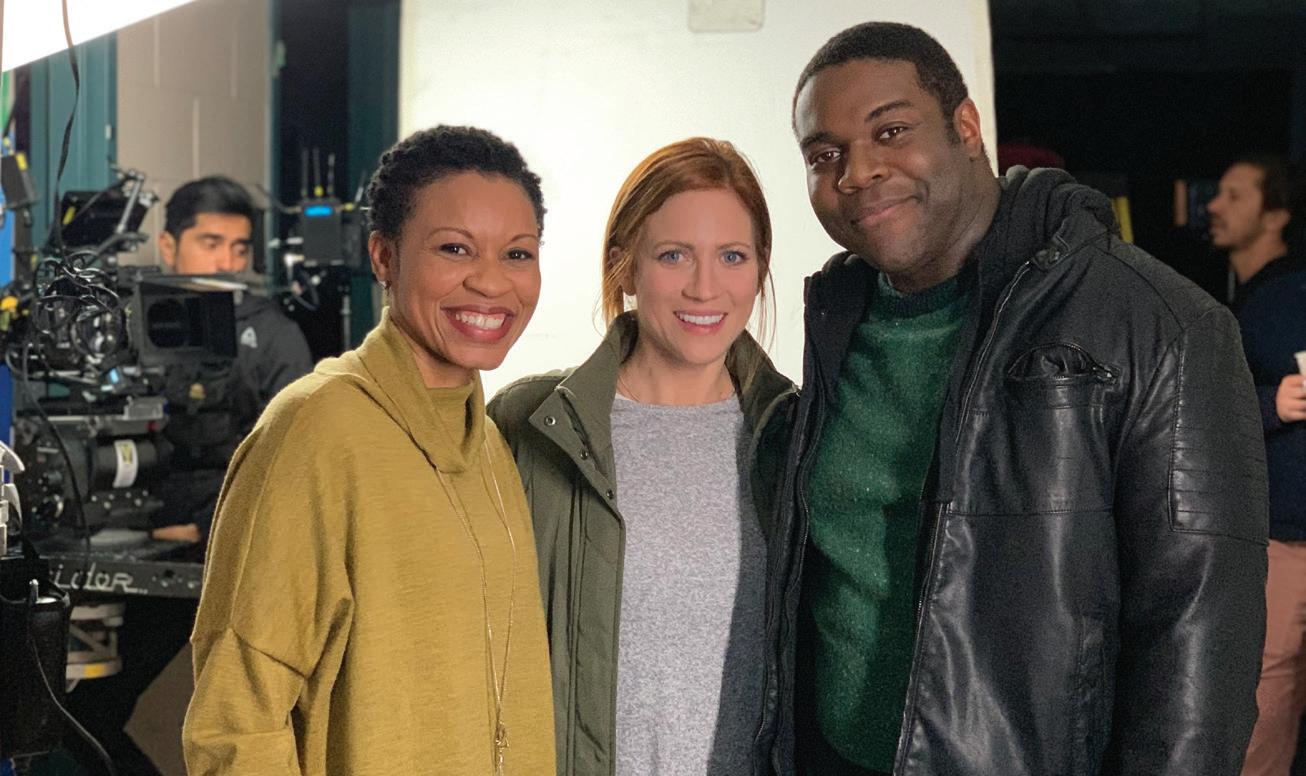
Despite the challenges Texas actors face, it’s clear that the TMIIIP budget increase would change the game. So what are we waiting for? Let’s play.
“Hollywood’s still out there, but there are qualified actors all across the country who could fill roles wherever a location is,” Collins says. “We’re hoping that, because we’re such a large state and know how to do this, we will become one of the major states if not the top state over the next several years.”
Meet Kaylie Medrano, a Tarrant County College Trailblazer who dreams of making the world a better place through film. Thanks to the Dan Echols Memorial Scholarship, TCC’s Film program and the state’s growing movie and TV industry, her future is full of promise.
The Tarrant County College Foundation is committed to helping students like Kaylie take bold steps for brighter futures. A 501(c)(3) tax-exempt organization, the Foundation acts separately from the College solely for the benefit of TCC and Trailblazers who otherwise might not earn a higher education.
As we celebrate our founding 60 years ago, we are fiercely determined to make an exceptional education attainable for all who seek it. To meet students where they are and do everything we can to get them where they want to be. To be the premier industry partner in the region, driving innovation, economic growth and positive change for all of us.
You can be part of that.
Scan the QR code or go to our website to make your contribution today.

GIVE NOW SCAN QR CODE
Before I came to Tarrant County College, I was unsure of what I would do with my future. Researching TCC’s program o erings, I was pulled toward the Film program. I hope to spend my professional career creating films that bring joy and entertainment to the world. I am very grateful that I am able to learn the skills I need without going to a university. This is life changing for me!”
To make a gift, scan the QR code or visit foundation.tccd.edu.

Your tax-deductible contribution is greatly appreciated.

Now, you look at a city this time of morning and you wonder
What it’s like, who lives there
What made it take root and grow...